Book reviews: 47 of the best novels of 2022
New releases include The Singularities by John Banville and Saha by Cho Nam-Joo
- 1. The Singularities by John Banville
- 2. Saha by Cho Nam-Joo (trans. Jamie Chang)
- 3. Bournville by Jonathan Coe
- 4. Molly & the Captain by Anthony Quinn
- 5. Darling by India Knight
- 6. The Passenger by Cormac McCarthy
- 7. Demon Copperhead by Barbara Kingsolver
- 8. Liberation Day by George Saunders
- 9. Lucy by the Sea by Elizabeth Strout
- 10. The Romantic by William Boyd
- 11. The Marriage Portrait by Maggie O’Farrell
- 12. Carrie Soto is Back by Taylor Jenkins Reid
- 13. Lessons by Ian McEwan
- 14. The Ink Black Heart by Robert Galbraith
- 15. Haven by Emma Donoghue
- 16. Trust by Hernan Diaz
- 17. The Last White Man by Mohsin Hamid
- 18. A Hunger by Ross Raisin
- 19. Acts of Service by Lillian Fishman
- 20. The Twilight World by Werner Herzog
- 21. The Exhibitionist by Charlotte Mendelson
- 22. Vladimir by Julia May Jonas
- 23. To Paradise by Hanya Yanagihara
- 24. Joan by Katherine J. Chen
- 25. The House of Fortune by Jessie Burton
- 26. The Seaplane on Final Approach by Rebecca Rukeyser
- 27. The Young Accomplice by Benjamin Wood
- 28. The Sidekick by Benjamin Markovits
- 29. Nonfiction: A Novel by Julie Myerson
- 30. You Have a Friend in 10A by Maggie Shipstead
- 31. Very Cold People by Sarah Manguso
- 32. Trespasses by Louise Kennedy
- 33. Elizabeth Finch by Julian Barnes
- 34. The Candy House by Jennifer Egan
- 35. Companion Piece by Ali Smith
- 36. Young Mungo by Douglas Stuart
- 37. Sell Us the Rope by Stephen May
- 38. French Braid by Anne Tyler
- 39. Good Intentions by Kasim Ali
- 40. The School for Good Mothers by Jessamine Chan
- 41. Pure Colour by Sheila Heti
- 42. A Previous Life by Edmund White
- 43. A Class of Their Own by Matt Knott
- 44. Our Country Friends by Gary Shteyngart
- 45. Scary Monsters by Michelle de Kretser
- 46. Free Love by Tessa Hadley
- 47. The Fell by Sarah Moss
A free daily email with the biggest news stories of the day – and the best features from TheWeek.com
You are now subscribed
Your newsletter sign-up was successful
1. The Singularities by John Banville
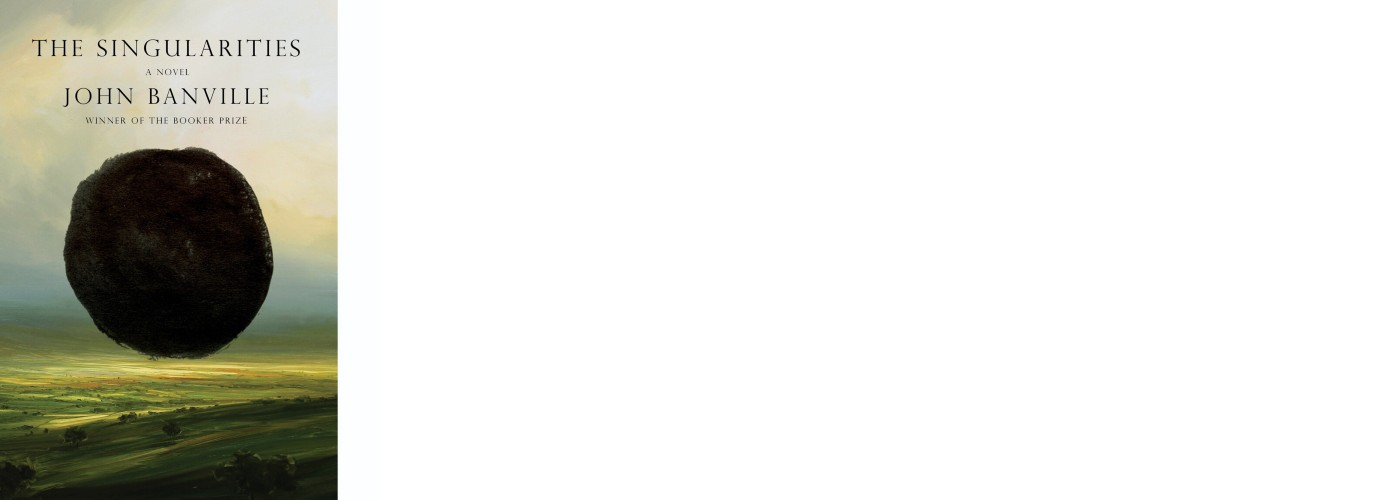
As the author of three trilogies, John Banville is “no stranger to using recurring characters”, said Ian Critchley in Literary Review. But The Singularities takes this to extremes: so stuffed is it with “old Banville protagonists” that it is close to being a “literary greatest-hits collection”. The setting is Arden House – the crumbling Irish country house from Banville’s 2009 work The Infinities. Various characters from that work are joined by William Jaybey (from The Newton Letter) and Freddie Montgomery (from The Book of Evidence), among others. One doesn’t begrudge Banville his “game with his readers”: The Singularities is a “pleasure to read”.
With its “assembly of characters” and country house setting, this novel seems to have the “makings of a whodunnit”, said Tom Ball in The Times. But “no one dies”, or even falls out; and, in fact, little of consequence happens. Fortunately, “you don’t read Banville for his taut plots”. You read him because, every few pages, there’s a sentence “so perfectly contrived it stops you for a moment, achingly, like a beautiful stranger passing in the street”.
Knopf 320pp £14.99; The Week Bookshop £11.99
The Week
Escape your echo chamber. Get the facts behind the news, plus analysis from multiple perspectives.

Sign up for The Week's Free Newsletters
From our morning news briefing to a weekly Good News Newsletter, get the best of The Week delivered directly to your inbox.
From our morning news briefing to a weekly Good News Newsletter, get the best of The Week delivered directly to your inbox.
2. Saha by Cho Nam-Joo (trans. Jamie Chang)
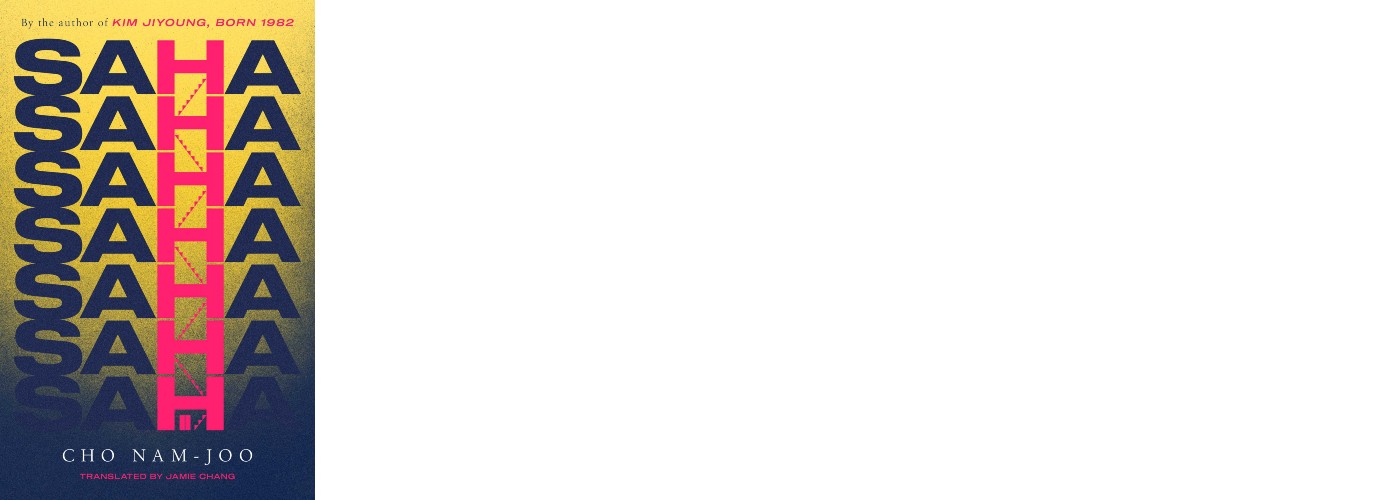
The South Korean writer Cho Nam-Joo is best known for her 2016 novel Kim Jiyoung, Born 1982, said Ellen Peirson-Hagger in The i Paper. A story of “everyday sexism”, it sold more than a million copies in South Korea and sparked a national conversation about the status of women. Cho’s latest novel, Saha, is “just as political” – though this time the focus is on class. Set in a dystopian future, the novel follows a disparate group of characters who live in some dilapidated buildings on the outskirts of “Town”, a fiercely hierarchical “privatised city-nation” where all aspects of life are tightly controlled. Offering a powerful critique of “plutocracy, systemic inequality” and “gendered violence”, the novel is “utterly captivating”.
Cho’s dystopia is “not particularly original”, and her plotting can be “surprisingly loose”, said Mia Levitin in The Daily Telegraph. But the novel’s characterisation is “touching” – and its themes are certainly powerful. At a time of rising global inequality – South Korea’s economy is dominated by “mega-corporations” – this is a book that “resonates widely”.
Scribner 240pp £14.99; The Week Bookshop £11.99
3. Bournville by Jonathan Coe
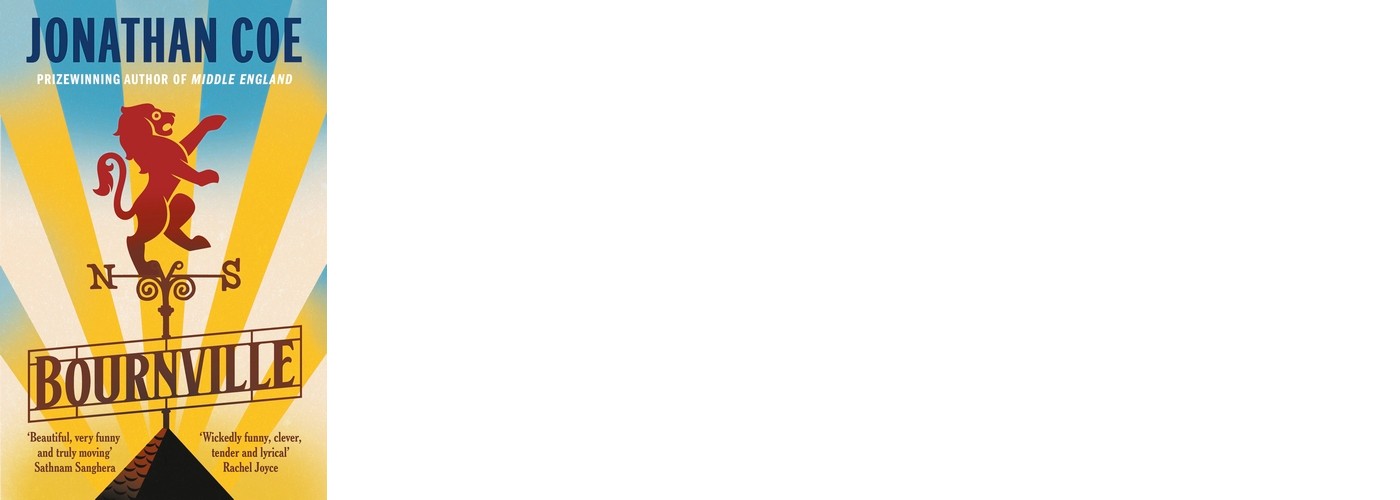
“Few contemporary writers can make a success of the state-of-the-nation novel,” said Rachel Cunliffe in The New Statesman. But one who can is Jonathan Coe. His latest charts 75 years of British history, following the lives of a single family, headed by matriarch Mary Lamb, who live on the outskirts of Birmingham, near the Bournville factory. Coe covers so much ground in just 350 pages by alighting only on key moments: VE Day in 1945; the Queen’s coronation; the 1966 World Cup; the death of Diana, Princess of Wales. The result is a “piercing” satire on Englishness that is “designed to make you think by making you laugh”. This is a warm and comforting book, said Melissa Katsoulis in The Times – like a “mug of hot chocolate”.
A free daily email with the biggest news stories of the day – and the best features from TheWeek.com
The final section, set during Covid-19, is very moving, said J.S. Barnes in Literary Review. But much of this novel is “flat and formulaic”. The use of hindsight is clunky: when Mary visits The Mousetrap in 1953, she thinks: “I imagine it will be closing before very long.” It feels like a “procession through well-worn territory”, rather than something designed to “excite or entertain”.
Viking 368pp £20; The Week Bookshop £15.99
4. Molly & the Captain by Anthony Quinn
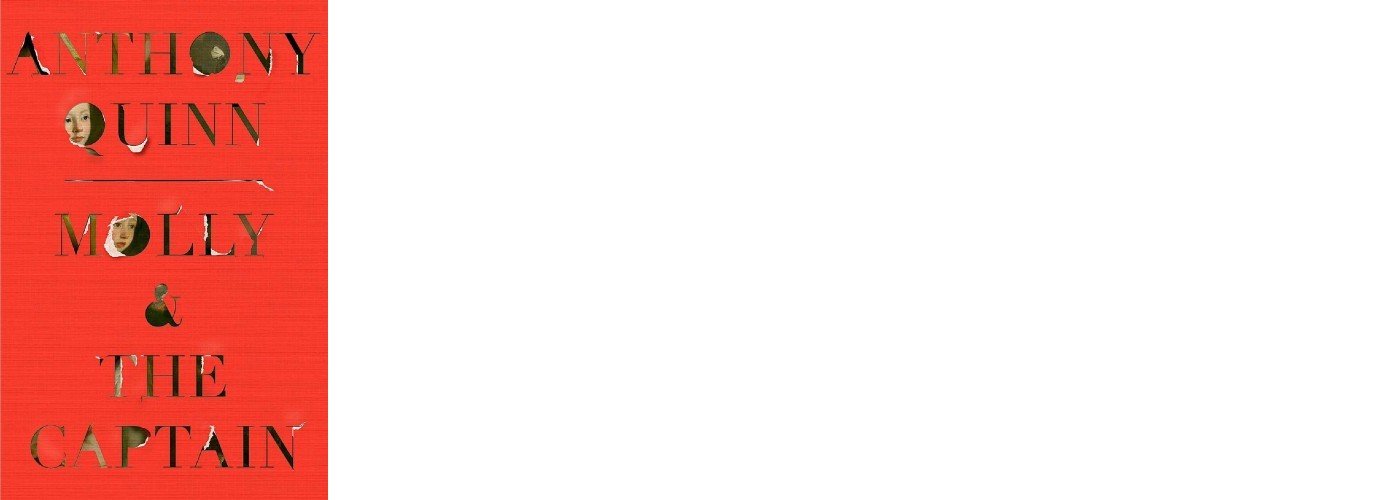
Anthony Quinn is a “fine prose stylist, able to evoke the past with vivid immediacy”, said Alex Preston in The Observer. His ninth novel is a sweeping epic that consists of three interlinked sections. In the 1780s, Laura Merrymount – daughter of the Gainsborough-esque portraitist William Merrymount – strives to escape from her father’s shadow and become a painter herself. In Chelsea a century later, we meet the young artist Paul Stransom and his sister Maggie – who abandoned her own dreams of becoming an artist to care for their dying mother. And finally, in 1980s Kentish Town another artist, Nell Cantrip, suddenly acquires late-career fame. Marked by its “intricate”, immaculate plotting, this novel is a “rollicking read”.
I found the plotting a bit predictable, and the characterisation heavy-handed, said Imogen Hermes Gowar in The Guardian. But the book has interesting things to say “about women’s work and talent, and the life cycle of art”; and it is deftly put together by a writer who delights in the “granular details of an era”, while also understanding its broad sweep.
Abacus 432pp £16.99; The Week Bookshop £13.99
5. Darling by India Knight
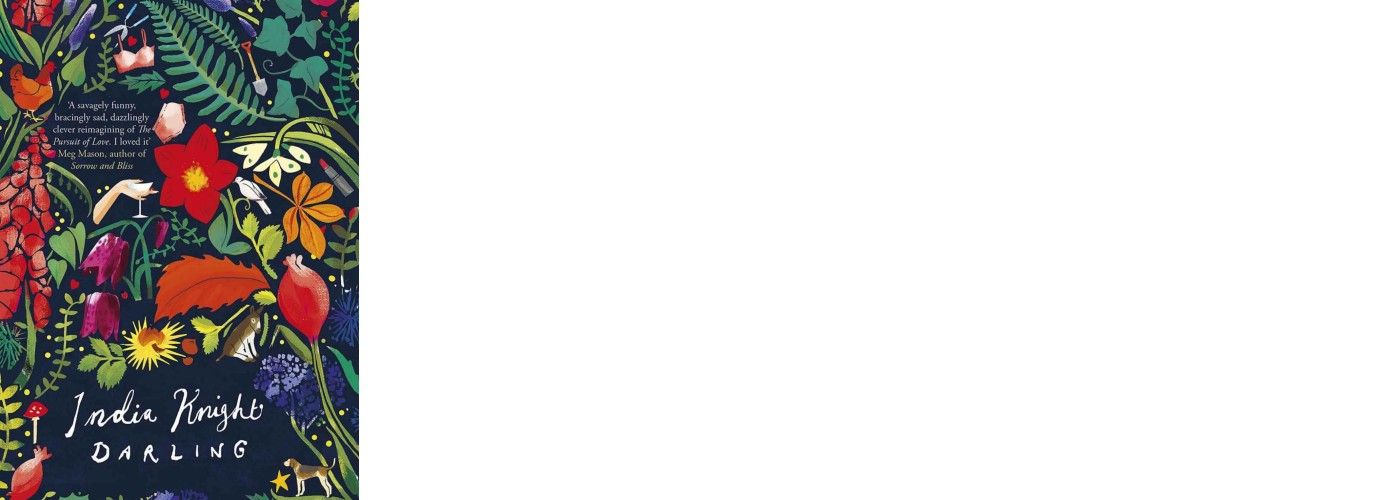
India Knight’s new book is a “contemporary reimagining” of Nancy Mitford’s The Pursuit of Love, said Christina Patterson in The Sunday Times. Updating “such a beloved novel” certainly isn’t easy – but Knight has pulled off the task with aplomb. In her version, the four Radlett children – Linda, Louisa, Jassy and Robin – are not the progeny of an English lord, but of an ageing and reclusive rock star. Desperate to protect his children from “modern life”, he has purchased a “vast Norfolk estate” – and it’s there that we first encounter Linda and her siblings, through the eyes of their cousin Franny. The narrative tracks their passage to adulthood, and their romantic entanglements – centred on “Linda’s pursuit of love”.
Darling works because, as in Mitford’s original, the details are so “bang on”, said Emma Beddington in The Spectator. Sometimes, Knight artfully tweaks them: she replaces hunting with swimming, and gives her adult characters jobs (Linda runs a café in Dalston). Mitford “diehards can rest easy: your blood vessels are safe with this faithful, fiercely funny homage”.
Fig Tree 288pp £14.99; The Week Bookshop £11.99
6. The Passenger by Cormac McCarthy
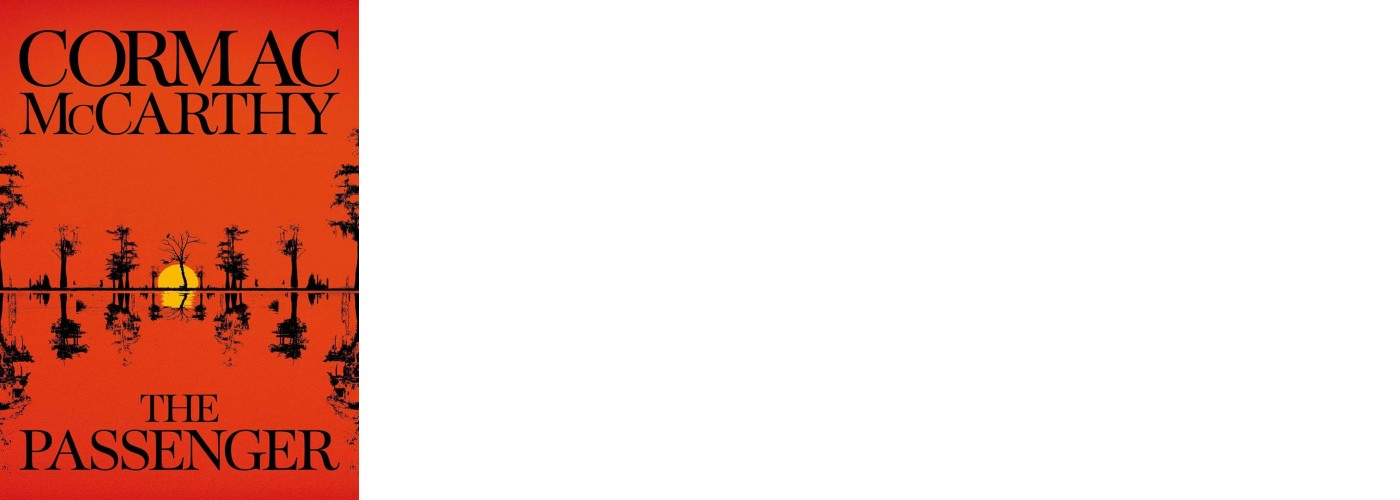
Cormac McCarthy’s first novel in 16 years explores “the very boundaries of human understanding”, said Nicholas Mancusi in Time. Investigating a plane crash in the Gulf of Mexico, diver Bobby Western discovers that one passenger is missing; soon he is being harassed by government agents. But the pretence that this is a thriller doesn’t last long: chapters in which Bobby discusses the meaning of life alternate with ones in which his maths genius sister Alice experiences schizophrenic hallucinations. It’s a deeply weird book, held together by “chuckle-out-loud” humour. A companion novel, Stella Maris, focusing on Alice, does little to explain it – but together they are “staggering”.
Sorry, said James Walton in The Times, but I can’t remember a recent novel so wildly indifferent to what its readers might enjoy, or even understand. The conversations that make up the bulk of it, ranging from nuclear physics to Kennedy’s assassination, are a complete ragbag. McCarthy’s gift for description and dialogue remains undiminished, but there’s no escaping the sense that The Passenger is “a big old mess”.
Picador 400pp £20; The Week Bookshop £15.99
7. Demon Copperhead by Barbara Kingsolver
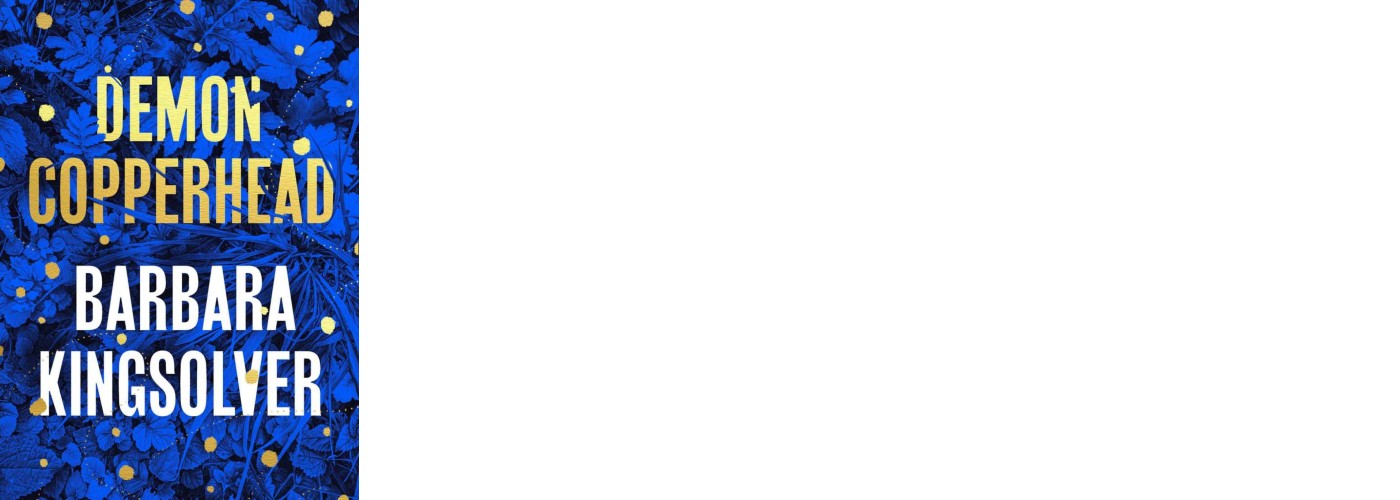
Barbara Kingsolver’s latest novel is a retelling of David Copperfield, transposed to the “valleys of southwest Virginia at the height of America’s opioid crisis”, said James Riding in The Times. Demon Copperhead, the “rambunctious hero”, is “born in a trailer to a teenage single mother”, and grows up in a world of neglectful child protection services and dubious guardians. The characters are all recognisable from the Dickens novel – but appear in new guises: “Steerforth becomes Fast Forward, a pill-popping quarterback; Uriah Heep is U-Haul, a football coach’s errand boy”. Daring and entertaining, Demon Copperhead is “shockingly successful” – “like Dickens directed by the Coen brothers”.
It’s a promising premise, not least because in its extreme inequality, post-industrial America resembles Victorian England, said Jessa Crispin in The Daily Telegraph. Yet while Kingsolver closely cleaves to the story of the original, she “breaks the most important rule of working in the Dickensian mode”: the need to “show the reader a good time”. Hers is a retelling “beset by earnestness” – and as a result it falls flat.
Faber 560pp £20; The Week Bookshop £15.99
8. Liberation Day by George Saunders
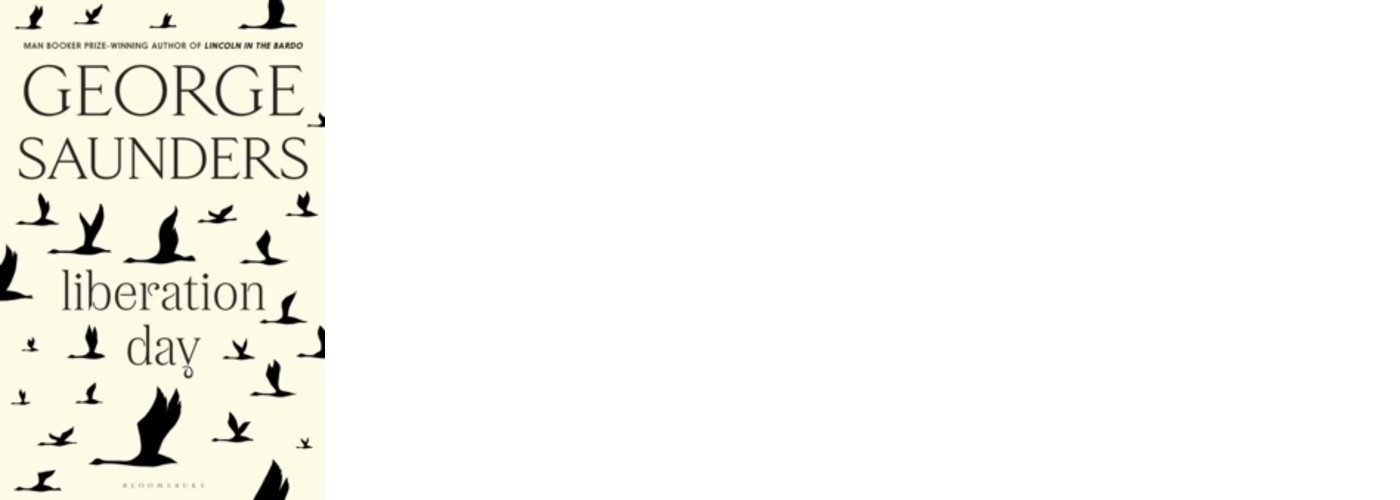
Besides being a Booker Prize winner with his only novel, Lincoln in the Bardo, George Saunders is “routinely hailed as the world’s best short story writer”, said James Walton in The Daily Telegraph. The American’s dazzling new collection – his first since 2013’s Tenth of December – shows why he garners such acclaim. As is customary in a Saunders collection, quite a few of the tales are “deeply strange”: in the title story, three people are kept permanently “pinioned to a wall”, enacting scenes from American history; another story is set in a theme park that has never received any visitors. Around half the tales, however, explore “recognisable social and political dilemmas”: two employees clashing at work; a mother’s despair about the state of America after her son is pushed over by a tramp. And whether Saunders is engaging with contemporary reality, or “taking us somewhere else entirely”, he never forgets that the most important duty of a writer is to make his work “winningly readable”.
Tenth of December was a “marvellous” collection, but unfortunately Liberation Day doesn’t hit the same heights, said Charles Finch in the Los Angeles Times. Although “the standard of Saunders’ writing remains astronomically high”, there are times here when he seems almost on auto-pilot, reprising themes and situations he has previously explored. It’s true that if you’ve read Saunders before, then parts of Liberation Day will sound “like self-parody”, said John Self in The Times. But then again, “it’s churlish to knock a true original for repeating himself”. When he’s at his best, Saunders’ “oblique, farcical, tragic” view of the world still has the ability to “take the top of your head off”.
Bloomsbury 256pp £18.99; The Week bookshop £14.99
9. Lucy by the Sea by Elizabeth Strout
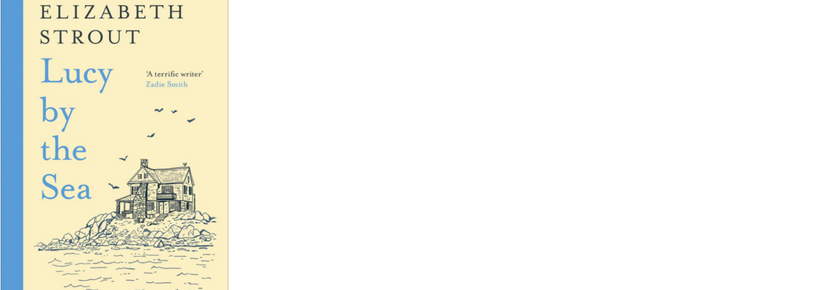
“Elizabeth Strout is writing masterpieces at a pace you might not suspect from their spaciousness and steady beauty,” said Alexandra Harris in The Guardian. Lucy by the Sea is the third sequel to her acclaimed bestseller My Name is Lucy Barton. It takes place early during the pandemic, when Lucy and her ex-husband, William, leave New York for a friend’s empty beach house in Maine – for “just a few weeks”, he says. It is “a study of a later-life reunion between a man and woman who married in their 20s”. It isn’t “a tender tale”, as William isn’t an easy man to like, but it is “as fine a pandemic novel as one could hope for”.
Over the course of three Lucy Barton books, Strout has “created one of the most quizzical characters in modern fiction”, said Claire Allfree in The Times. Still, even this “avid fan” found herself wondering whether this instalment is “surplus to requirements”. This, sadly, is a novel that “mistakes simplistic observation for subtle insight, bathos for pathos”, and Lucy herself is “downright annoying”. I disagree entirely, said Julie Myerson in The Observer. Lucy by the Sea is a wonderful evocation of lockdown life. It is “her most nuanced – and intensely moving – Lucy Barton novel yet”.
Viking 304pp £14.99; The Week Bookshop £11.99
10. The Romantic by William Boyd
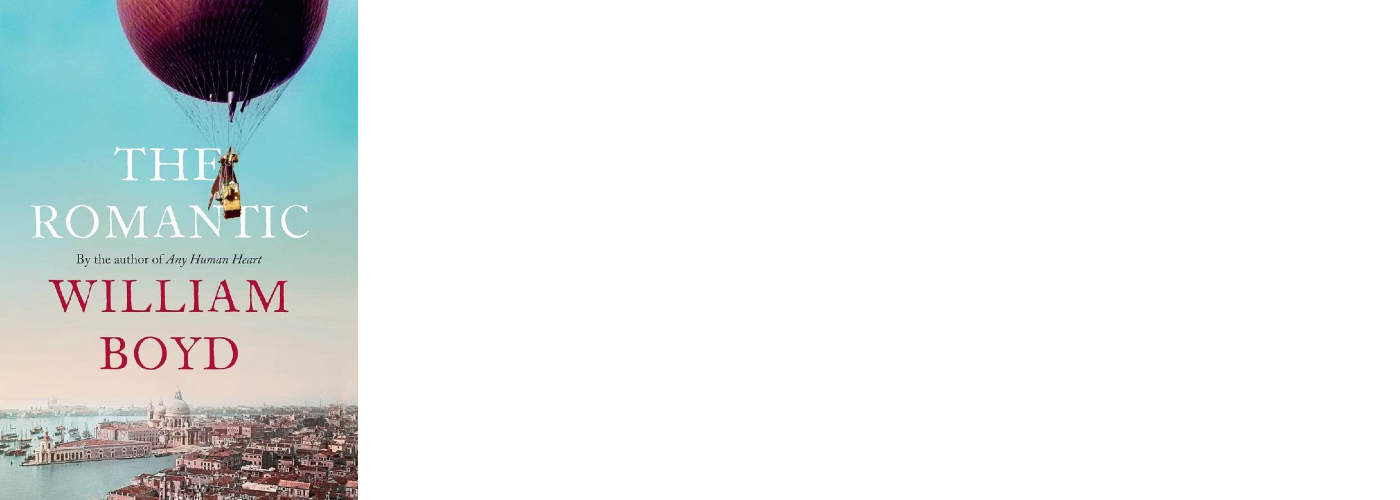
William Boyd’s 17th novel – his first set in the 19th century – is an “old-fashioned bildungsroman” that follows its “hero, Cashel Greville Ross, through a long and peripatetic life”, said Lucy Atkins in The Sunday Times.
After growing up in Ireland and Oxford, Cashel “impulsively joins the army” and finds himself “facing the French bayonets at the Battle of Waterloo”. He subsequently “hangs out” with Byron and Shelley in Italy, spends time in east India and New England, and becomes an opium addict, an author and a diplomat. Although the authorial winks can be groan-inducing – “Shelley can barely swim”, a friend of the poet declares – it is a “masterclass” in narrative construction and its ending is “genuinely poignant”.
Boyd is “as magically readable as ever”, said Jake Kerridge in The Daily Telegraph. But amid the non-stop action and “endless verbal anachronisms”, Cashel never quite emerges as a fully rounded character. Compared with Boyd’s previous “whole life novels”, such as Any Human Heart and Sweet Caress, The Romantic feels “glaringly synthetic”.
Viking 464pp £20; The Week Bookshop £15.99
11. The Marriage Portrait by Maggie O’Farrell
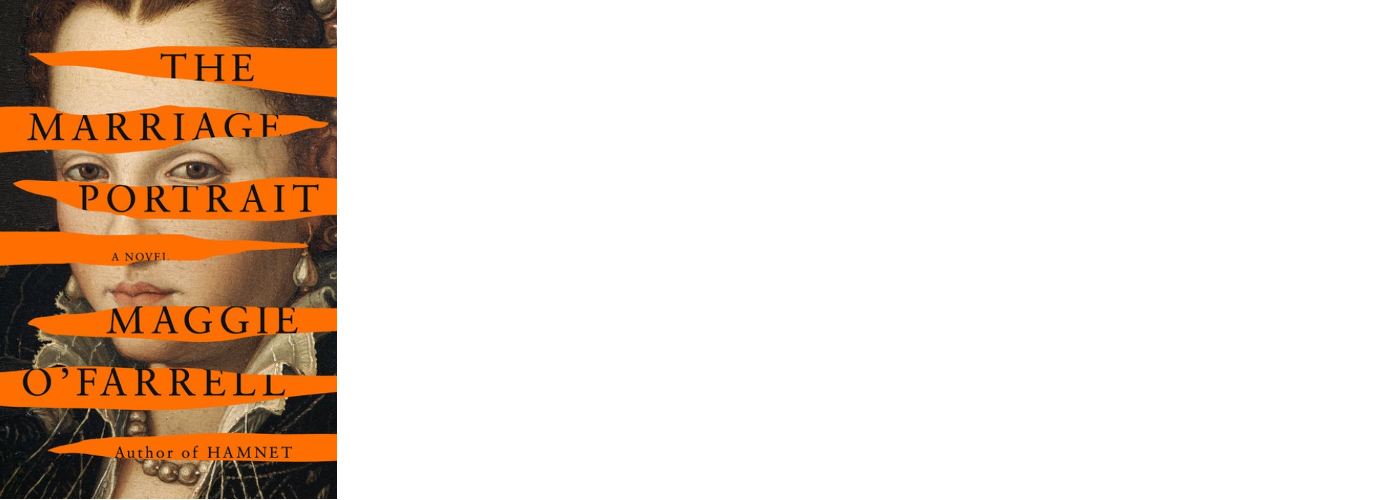
Maggie O’Farrell’s last novel, the brilliant Hamnet, “fleshed out” the lives of Shakespeare’s children, said Elizabeth Lowry in The Daily Telegraph. Her latest brings another neglected historical figure into the light – the noblewoman Lucrezia de’ Medici. In 1560, a 16-year-old Lucrezia left Florence to begin her married life with Alfonso d’Este, heir to the Duke of Ferrara, Modena and Reggio. “Within a year, she was dead”; it was rumoured Alfonso had killed her. Taking these “suggestive details” as inspiration (as Robert Browning did in his famous poem My Last Duchess), O’Farrell “constructs a convincing human drama”.
O’Farrell is a master of visual description, said Claire Allfree in The Times. A tiger moves “like honey dripping from a spoon”; through a window, the sound of sobbing drifts upwards “like smoke”. Yet the “headily perfumed” prose proves oddly dulling: rather than “springing forth messily alive”, Lucrezia seems “trapped beneath the weight” of the “relentless” description. Although it sets out to bring Lucrezia back to life, it ends up being a “bloodless book”.
Tinder Press 438pp £25; The Week Bookshop £19.99
12. Carrie Soto is Back by Taylor Jenkins Reid
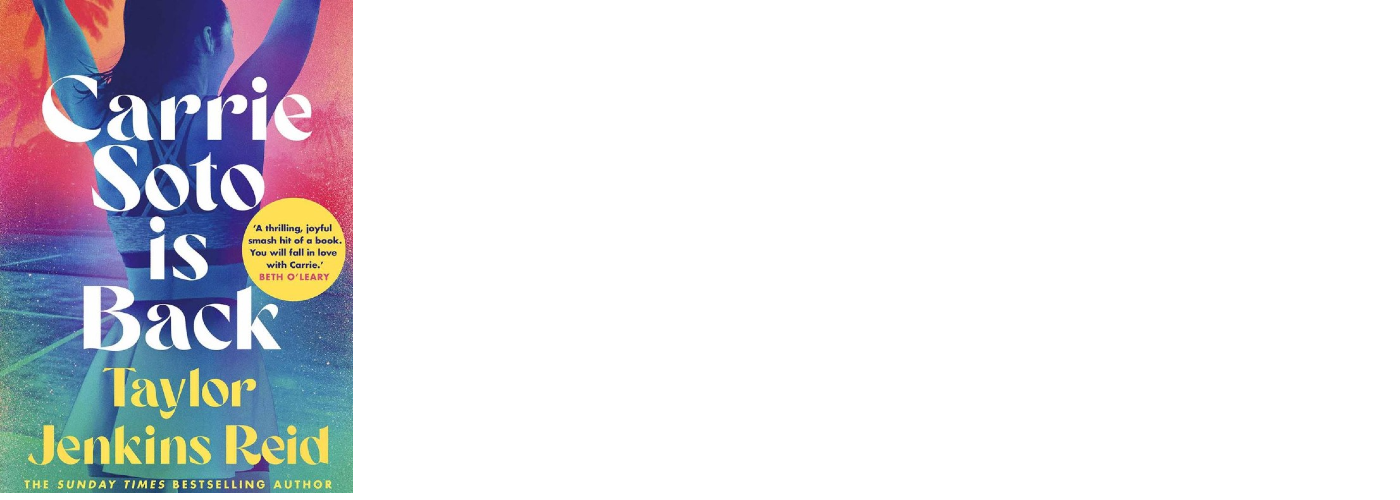
Taylor Jenkins Reid is a TikTok phenomenon, said Marianka Swain in The Daily Telegraph. Thanks in part to BookTok – the social media app’s books community – her novels about glamorous women finding fame and fortune have sold in their millions. Continuing with that “winning strategy”, her latest centres on a “hotshot American tennis pro”.
Carrie Soto is a former world No. 1, who has won a record 20 grand slams. Now in her late 30s, she mounts an “unlikely comeback”, prompted by the emergence of a new star, Londoner Nicki Chan. This is a “compulsive, soapy page-turner” with “more substance than the average beach read”. In short, it’s an “ace” of an “escapist romp”.
Jenkins Reid has a “nose for a cultural moment”, said Susie Goldsbrough in The Times. And so this book’s appearance so soon after the retirement of Serena Williams – clearly an inspiration for Carrie – is “coincidental but not surprising”. Don’t expect “psychological depth”; “fundamentally, this is a sports story”, with whole chapters devoted to single matches. But it’s certainly very “fun to read”.
Hutchinson Heinemann 384pp £16.99; The Week Bookshop £13.99
13. Lessons by Ian McEwan

Ian McEwan’s novels are often “lean, controlled enquiries” into specific historical moments, said Johanna Thomas-Corr in The New Statesman: 1950s Germany in The Innocent; the Thatcherite 1980s in A Child in Time. But his 18th is very different – “baggier and more protean” than any of its predecessors. It’s also, “to my mind, McEwan’s best novel in 20 years”. His protagonist, Roland Baines, is a baby boomer who bears a strong resemblance to his creator, were his creator “not a hugely successful novelist”. Roland spends his childhood in Libya, then “attends a state-run boarding school” in England. And like McEwan, he discovers as an adult that he has a long-lost brother. Yet his life is notable for its lack of direction: he “scratches out a living as a hotel lounge pianist, an occasional tennis coach and a hack”. Humble and wise, Lessons is “an intimate but sprawling story about an ordinary man’s reckoning with existence”.
As is often the case for McEwan’s protagonists, Roland’s life “hinges” on a single traumatic episode, said Edmund Gordon in the TLS. Aged 14, he begins an affair with his piano teacher, Miss Cornell – a relationship which, while he “isn’t exactly a reluctant participant”, nonetheless wounds him. A second trauma follows in his 30s, when Roland’s German-born wife, Alissa, abandons him and their baby son to pursue her ambition of becoming a novelist, said Peter Kemp in The Sunday Times. While Roland is left a single parent, Alissa – somewhat implausibly – becomes “Germany’s greatest writer”. As the decades pass, the “social and domestic cavalcade of Roland’s life” plays out against the backdrop of “momentous global happenings” – from 9/11 to the Covid lockdowns. A “vividly detailed lifetime chronicle”, Lessons is a “tour de force”.
Yet it has its problems, said Claire Lowdon in The Spectator. This is a novel full of dropped storylines and non sequiturs, and McEwan can’t resist those “overbearing news bulletins” that have peppered his recent work (“The Profumo affair was only a year away” etc.). Still, Lessons is consistently enjoyable, and there’s something to be said for the “novelty” of reading a McEwan novel that feels more like “a Jonathan Franzen”. At the age of 74, his desire to try new things is impressive. “Despite the rambling and the rushed patches, here is a whole, unruly life between the covers of a single book: a literary feat of undeniable majesty.”
Cape 496pp £20; The Week Bookshop £15.99
14. The Ink Black Heart by Robert Galbraith
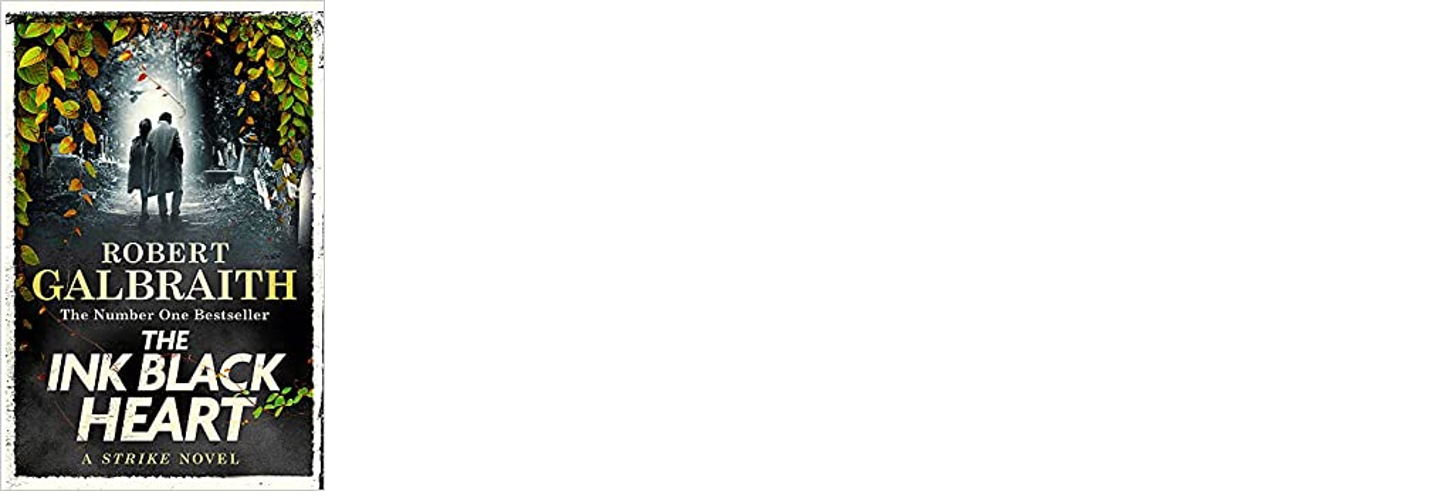
This new crime novel by J.K. Rowling, using her Robert Galbraith pseudonym, has Cormoran Strike, her Afghan-War-veteran-turned-private detective, getting to grips with the world of online trolls, said Joan Smith in The Sunday Times.
Strike and his partner Robin are called to investigate the stabbing to death of a woman named Edie. She was the co-creator of a YouTube cartoon featuring “ghoulish” characters cavorting in a cemetery, and the finger of suspicion falls on a gamer known as “Anomie”, who had subjected Edie to a “torrent of lurid accusation” after claiming that she’d ripped off his ideas.
While the novel works as a “superlative piece of crime fiction”, its subject matter also feels highly pointed: Rowling has herself faced accusations of plagiarism, and she has been subjected to savage online abuse for arguing that aspects of trans ideology lead to the “erasure of the word ‘woman’”.
Sphere 1,024pp £25; The Week Bookshop £19.99
15. Haven by Emma Donoghue
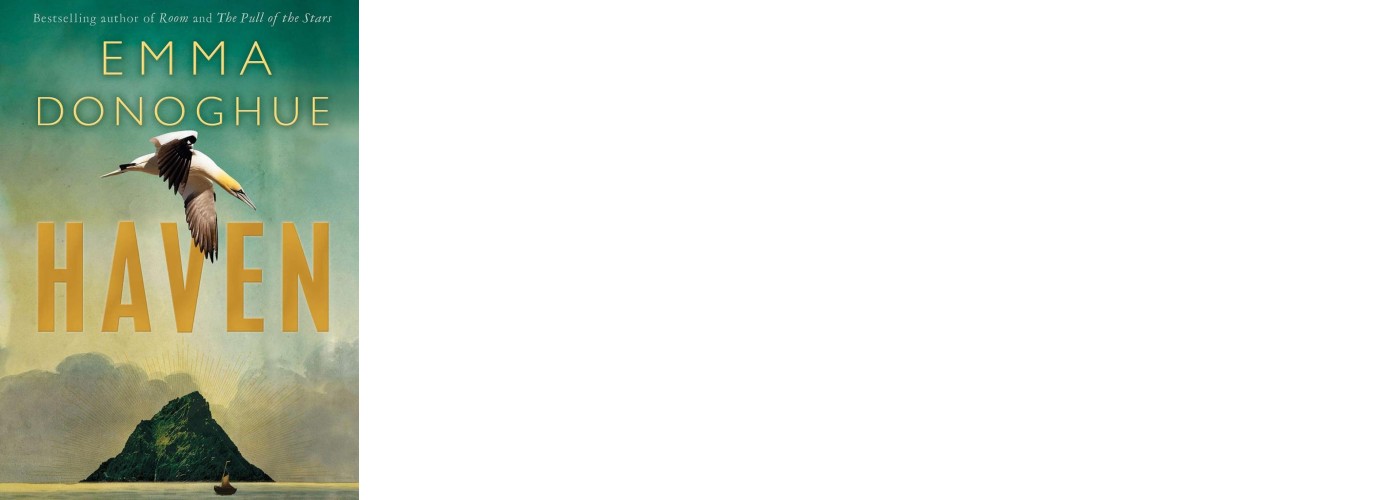
Emma Donoghue’s latest novel is set in early 7th century Ireland, and centres on a trio of monks who build a monastic community on a tiny island, said Ron Charles in The Washington Post. The men set out in their “precarious boat” after their leader Artt – a “legendary holy man” – has a “vision of an island in the western sea”. When they reach a “large rock” covered in “birds, guano and little else”, Artt is convinced it’s the place from his dream – and resolves that he and his companions will never leave. Haven may sound like a work that “few readers have been praying for”, but it proves “transporting, sometimes unsettling and eventually shocking”.
There are some “striking formal similarities” between this novel and Donoghue’s 2010 bestseller Room, inspired by the Josef Fritzl case, said Paraic O’Donnell in The Guardian. Both are works of “radical minimalism”, about people who “struggle to preserve their humanity in utter isolation”. Although Haven is “created in a muted palette”, this is a work of impressive “narrative sustenance” – and is “crowded with quietly beautiful details”.
Picador 272pp £16.99; The Week Bookshop £13.99
16. Trust by Hernan Diaz
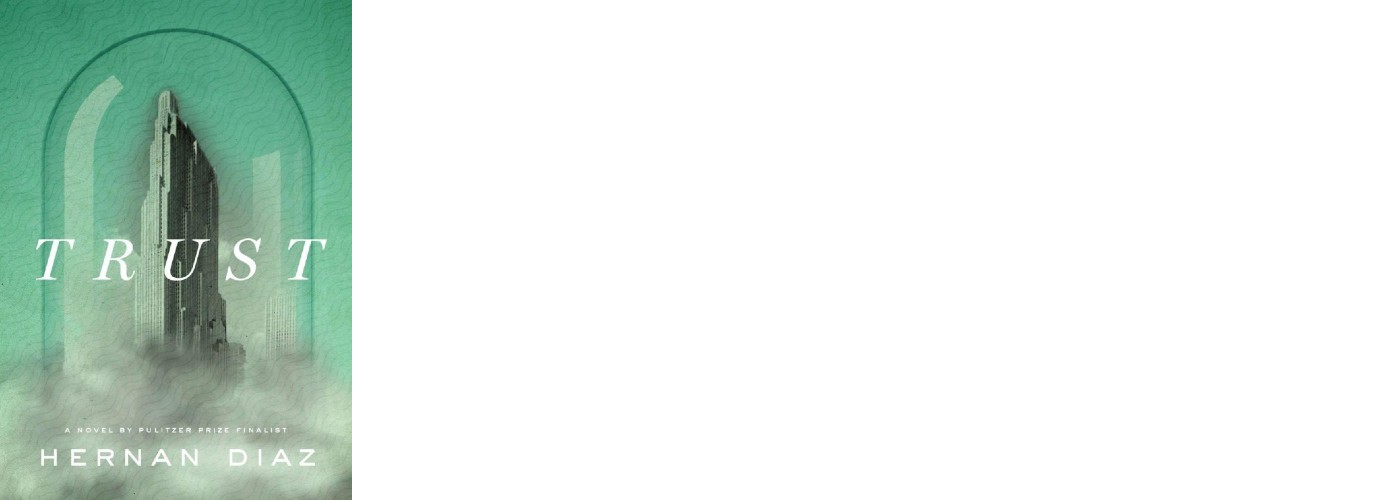
Hernan Diaz’s Pulitzer Prize-nominated first novel, In the Distance, centred on a “penniless young Swedish immigrant” in California, said Jonathan Lee in The Guardian. His second concerns a “character at the other end of the economic scale” – a “Gatsby-like tycoon in 1920s New York” named Andrew Bevel. Rather than tell Bevel’s story straight, Diaz embeds it in four “interconnected narratives”: a fictionalised novel based on Bevel’s life; Bevel’s unfinished autobiography; a memoir by his ghostwriter; and fragments from his wife’s “long-withheld diary”. It sounds tricksy, but it’s surprisingly readable – like a “brilliantly twisted mix” of Borges and J.M. Coetzee, with “a dash” of Italo Calvino.
The “knotty ingenuity” of this novel makes it deserving of its place on this year’s Booker longlist, said Lucy Scholes in The Daily Telegraph. It is “destined to be known as one of the great puzzle-box novels”. I doubt that, said John Self in The Times. Parts are “original and surprising”, but overall it’s “well behaved and dull”, and consumed by its own cleverness. Like the tycoon at its centre, it’s “all smart, no heart”.
Picador 416pp £16.99; The Week Bookshop £13.99
17. The Last White Man by Mohsin Hamid
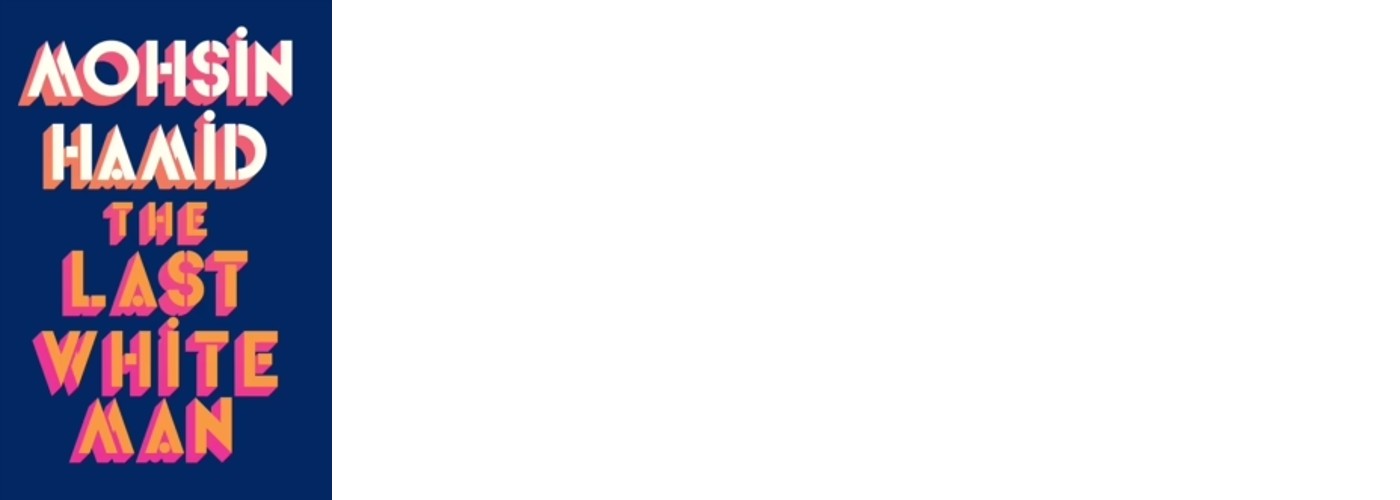
Mohsin Hamid’s fifth novel begins with a transformation, said Alex Preston in The Observer: Anders wakes up one morning to find his skin has changed from white to black. This metamorphosis is not explained; instead, the focus is on its impact on the people around Anders. When he goes out, he feels “vaguely menaced”; his boss tells him he’d have killed himself had it happened to him. But then Anders finds that similar transformations are taking place across the US, until eventually there is “just one white man left”. Written in “incantatory” sentences, The Last White Man is a “strange, beautiful allegorical tale”.
Mysterious transformations can be “fertile terrain” for fiction, said Houman Barekat in The Times: one thinks, most obviously, of Kafka’s Metamorphosis. But while that work resists easy interpretation, Hamid’s aims are all too obvious: this is “yet another liberal parable” about the “psychic underpinnings of racial prejudice”. Ultimately, it’s a book that says more about the “publishing industry’s anxious scrabble for topicality” than about “the human condition”.
Hamish Hamilton 192pp £12.99; The Week Bookshop £9.99
18. A Hunger by Ross Raisin
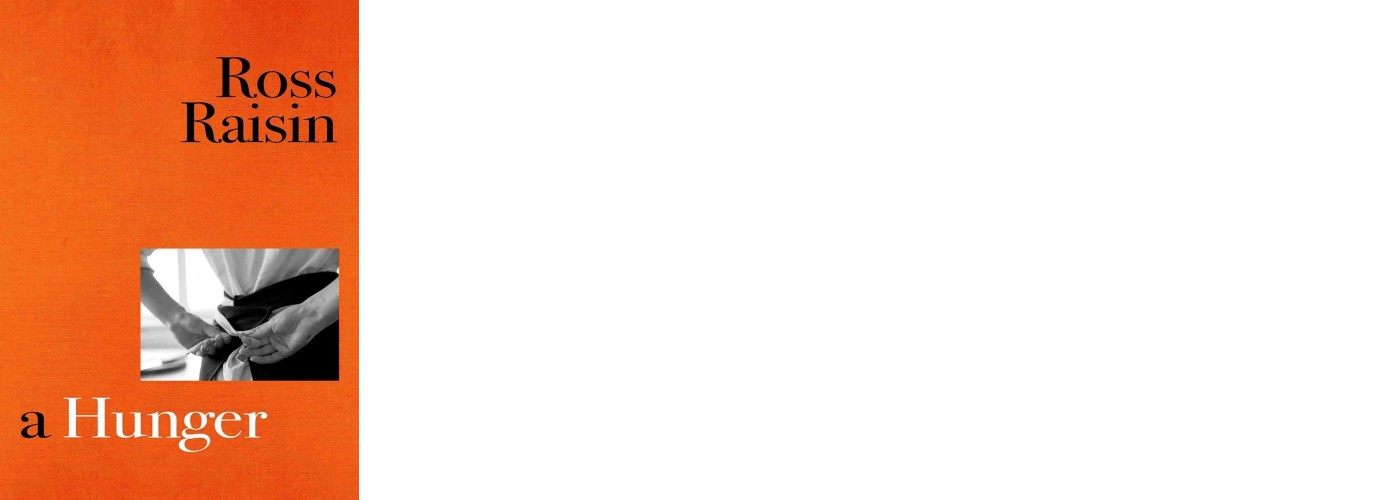
Most books billed as telling us “what it means to be human” really do no such thing, said John Self in The Observer. Ross Raisin’s A Hunger is an exception. The tale of a London “sous chef in her mid-50s”, this is the fourth novel by this talented writer – and it is his most “ambitious” yet, encompassing “work and family, desires and appetites, responsibility and identity”.
Raisin has always excelled at portraying working lives, said Alexandra Harris in The Guardian: Waterline, his second novel, centred on a Clyde shipbuilder; A Natural, his third, was about a lower league footballer. Here, he captures the rhythms of kitchen life so skilfully that it “makes one realise the degree to which work is still under-charted territory in literary fiction”. Yet the novel is about much more than cooking: Patrick, Anita’s husband of 30 years, has recently developed early-onset dementia, forcing her to combine the stresses of her job with a new role as a carer “changing incontinence pads”. The result is a “deeply thought out and beautifully unshowy” novel about the “conflicting demands of work and care”.
I wasn’t impressed, said Claire Lowdon in The Sunday Times. Although Raisin’s gifts for “startling descriptive prose” are evident – notably in a bravura opening set in a walk-in fridge – the novel overall is let down by “wooden dialogue”, characters who don’t seem real, and a clumsy structure in which Anita’s present-day travails are juxtaposed with “rushed and skimpy” scenes from her early life. It may not be perfect, but this is a deft exploration of “the guilt that accompanies female ambition”, said Amber Medland in the FT. Daring in what it sets out to achieve, A Hunger is equally “impressive in its execution”.
Jonathan Cape 464pp £18.99; The Week bookshop £14.99
19. Acts of Service by Lillian Fishman
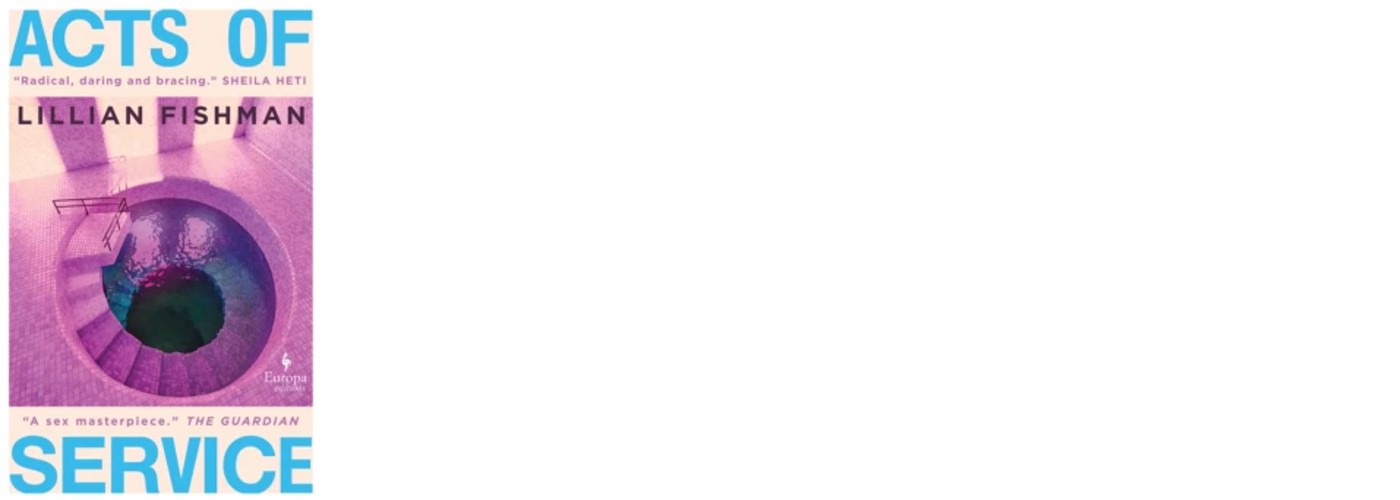
Lillian Fishman’s debut is one of the most “searching and enthralling” novels about sex I’ve read in years, said Johanna Thomas-Corr in The New Statesman. “Eve is a 28-year-old barista from Brooklyn in a long-term relationship with Romi, a paediatrician.” Although Eve considers herself a lesbian, she has fantasies about sleeping with a “wild number of people”. When she posts nude pictures of herself online, they catch the attention of an artist called Olivia – who proves to be acting on behalf of a “tall, wealthy man in his 30s” named Nathan, who makes Eve his sexual “toy”. “Part erotic Bildungsroman, part melancholy comedy of manners”, Acts of Service is “startlingly accomplished”.
Well, I found it thoroughly tedious, said Jessa Crispin in The Times – less a novel than a crude allegory. Nathan is “basically Christian Grey from Fifty Shades rendered in marginally better prose”. Fishman’s reflections on the corrupting effects of “patriarchy” and “capitalism” have been far better expressed elsewhere. Overhyped and unoriginal, this is a disappointing addition to the “library of endless want”.
Europa Editions 224pp £12.99; The Week Bookshop £9.99
20. The Twilight World by Werner Herzog
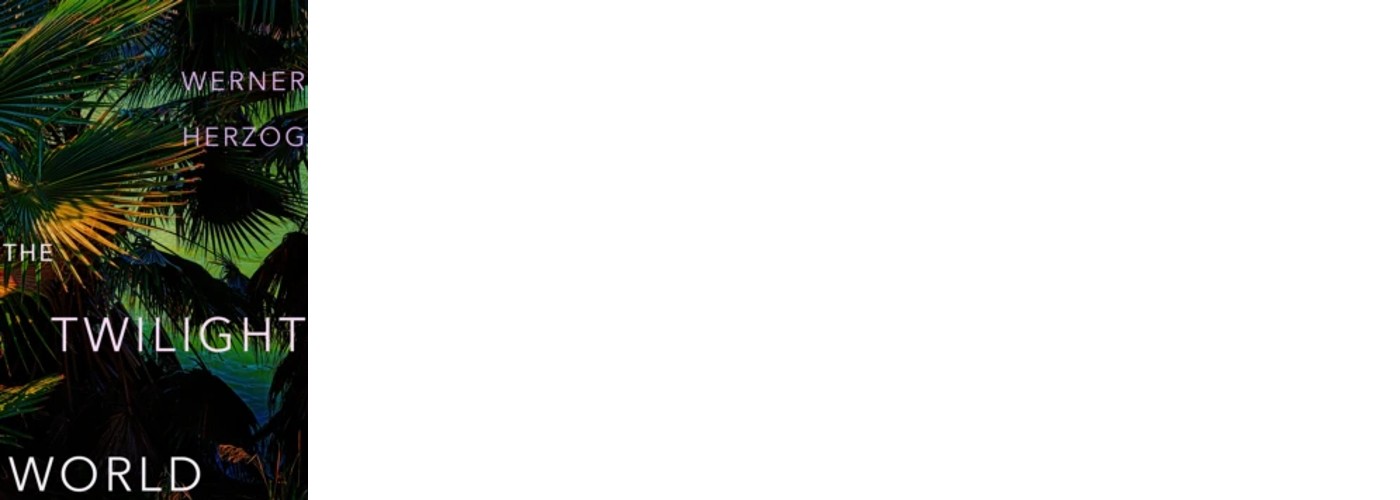
For 29 years after the end of the Second World War, a Japanese soldier named Hiroo Onoda held out on a small island in the Philippines, believing his comrades were still fighting, said Anthony Gardner in The Mail on Sunday. Now the great film director Werner Herzog, who befriended Onoda in 1997, has written an imaginative reconstruction of his experiences. Steeped in the atmosphere of the jungle, it’s an “enthralling” novel that explores the nature of time and warfare with great mastery.
Onoda’s single-minded intransigence makes him an archetypal Herzog hero, said Tim Robey in The Daily Telegraph, and this “Hemingwayesque” novella is highly cinematic, with short chapters and vivid scene-setting. But its refined prose gives it a sculptural quality too: its descriptions of the natural world are radiant. Herzog manages to inhabit the soldier’s mind, and to create a “visionary” narrative, said Peter Carty in The i Paper. Moral issues – Onoda killed a number of islanders – are somewhat sidelined, but this beautifully crafted book is a “literary jewel” nevertheless.
Bodley Head 144pp £14.99; The Week Bookshop £11.99
21. The Exhibitionist by Charlotte Mendelson
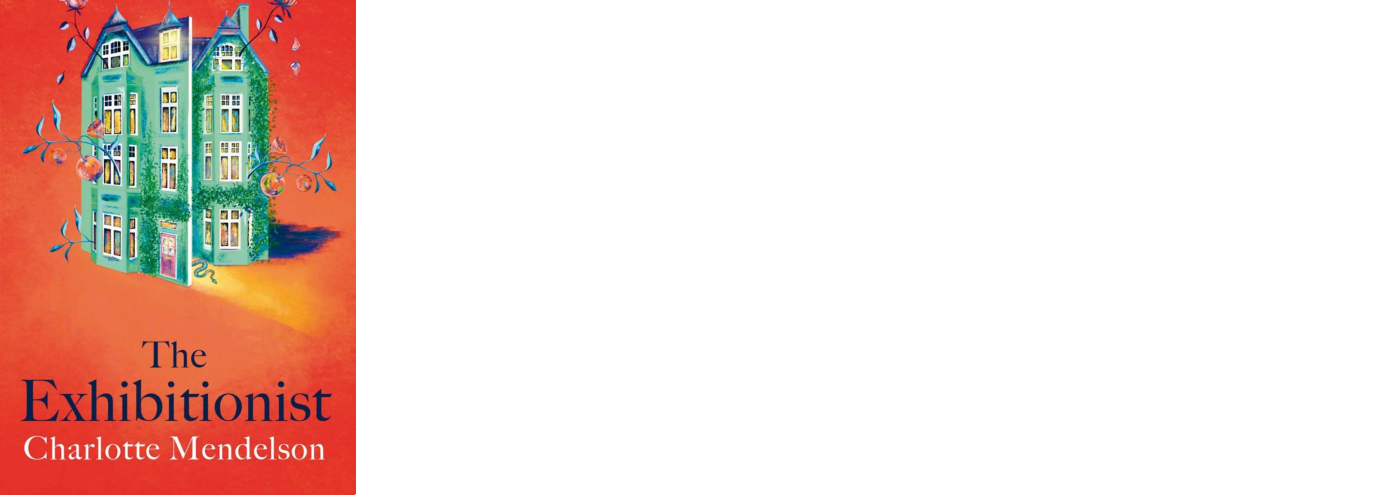
Charlotte Mendelson’s “riotous, prize-winning novels” tend to be about messy, dysfunctional families, said Leyla Sanai in The Spectator. Her fifth centres on a “monstrous” artist named Ray Hanrahan and his downtrodden wife, Lucia. Narcissistic, abusive and controlling, Ray has “quashed” Lucia’s own artistic ambitions for decades, forcing her to minister to his needs and look after their (now grown-up) children.
With an “ostentatious private view” of his work about to open, he has summoned friends and family to their north London house. The result is a “glorious ride” of a novel – one in which “Mendelson observes the minutiae of human behaviour like a comic anthropologist”.
There is a lot going on in this novel – “at times, too much” – but the overall “effect is exhilarating”, said Susie Mesure in The Times. Moving between perspectives, Mendelson cranks the drama up to a “fiery climax”. There’s a “hint of HBO’s Succession” in this tale of a “family in thrall to a despotic patriarch”, said Madeleine Feeny in The Daily Telegraph. Mingling “eroticism, absurdity and pathos”, it’s “electric”.
Mantle 336pp £16.99; The Week Bookshop £13.99
22. Vladimir by Julia May Jonas
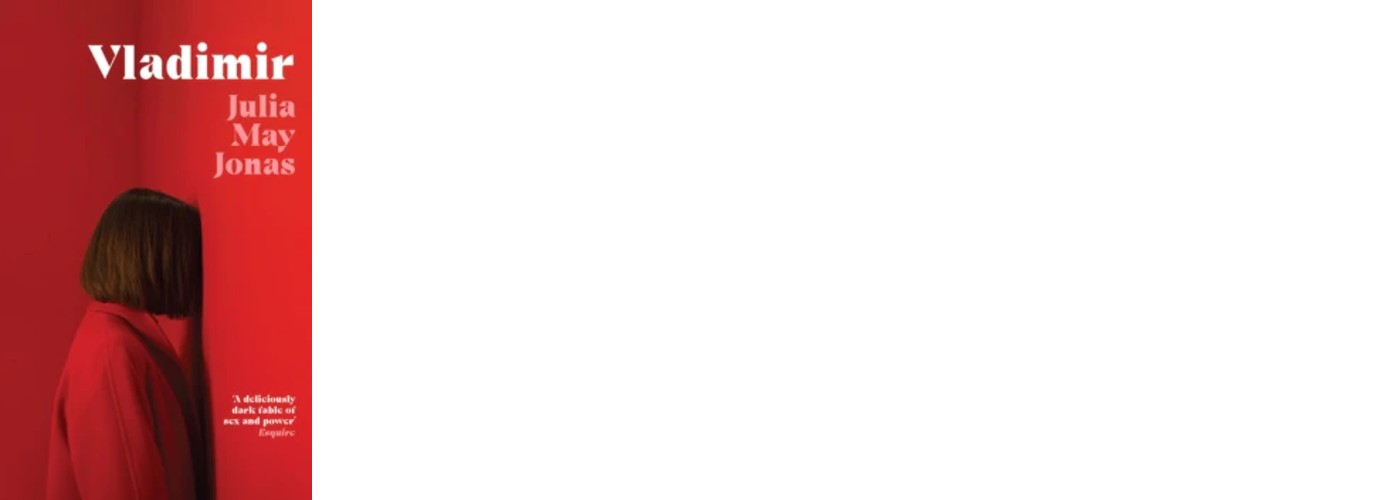
At first glance, this debut novel seems to be yet another post-#MeToo book “dissecting sexual trauma and queasy power dynamics”, said Laura Hackett in The Sunday Times. At a US liberal arts college, John, a senior English professor, finds himself accused of sexual impropriety by “seven students with whom he has had affairs”. But rather than adopt their perspective, the novel is narrated by John’s wife – who is anything but sympathetic towards them. She laments the fact that young women today seem to have “lost all agency”, and admits to having “enjoyed the space” that her husband’s infidelities provided. With its bracing take on sexual politics, Vladimir is an “astonishing debut”.
In its second half, the novel becomes primarily about “female appetite”, as the narrator develops an obsessive crush on a “gorgeous new junior professor”, said Lucy Atkins in The Guardian. May Jones’s “quietly captivating” voice dazzles until the end, when the novel is let down by a “heavy-handed denouement”. Still, in its willingness to tackle “complex”, provocative themes, this is “an engrossing and clever debut”.
Picador 256pp £14.99; The Week Bookshop £11.99
23. To Paradise by Hanya Yanagihara
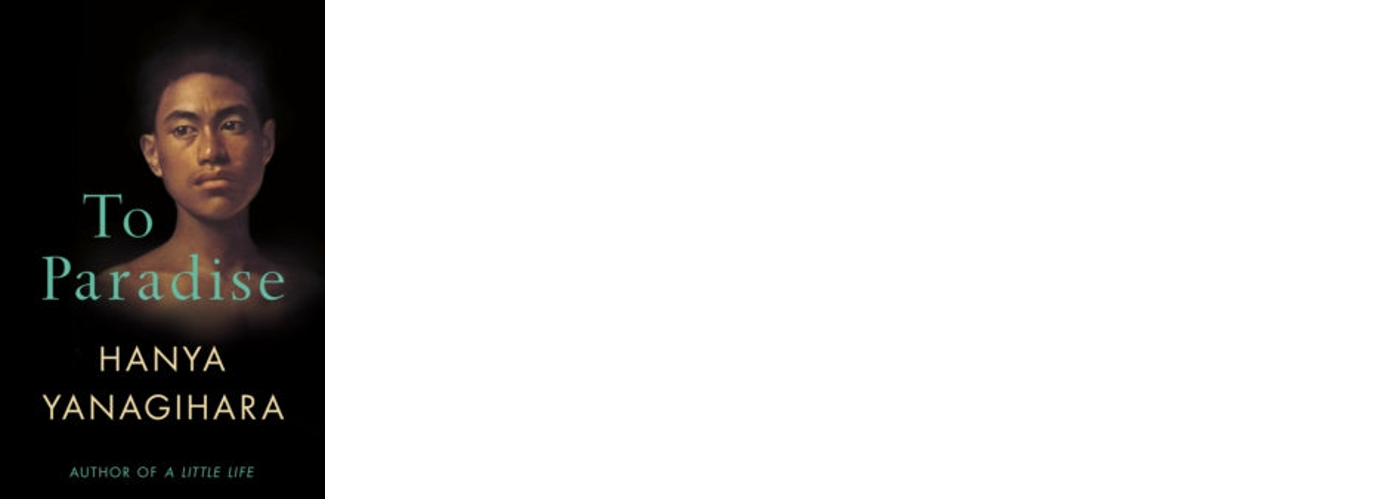
Hanya Yanagihara’s latest novel is the “keenly awaited” follow up to A Little Life, her “devastating story of irreparable human damage”, said David Sexton in The Sunday Times. It consists of three sections all set in the same New York building and taking place, respectively, in 1893, 1993 and 2093.
Part one re-imagines 19th century New York as a “liberal breakaway nation in which gay marriage is normal”. Part two, set in the “time of Aids”, focuses on a wealthy white lawyer and his young Hawaiian lover. Part three envisages an America that has been ravaged by “successive waves of viruses, every few years from 2020”. While a “less bludgeoningly powerful” work than A Little Life, it’s still “highly affecting”.
This is in many ways a “wantonly strange” work, said Claire Allfree in The Times: the convoluted narrative can be “frustratingly opaque”, and there’s a complete absence of humour. Yet there’s no denying Yanagihara’s skill at immersing us in the “emotional world of her characters”. For all its flaws, To Paradise is “frequently magnificent”.
Picador 720pp £20; The Week Bookshop £15.99
24. Joan by Katherine J. Chen
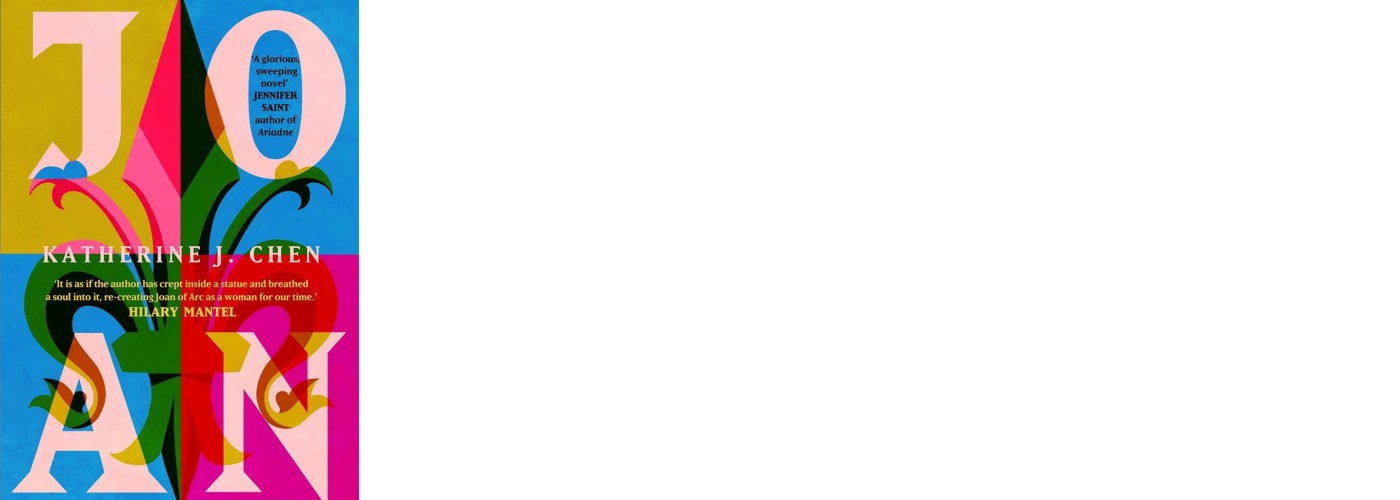
The story of Joan of Arc – a 15th-century peasant girl from northeast France who became a national heroine – has been told many times before, said Marianka Swain in The Daily Telegraph. But in her second novel, the American writer Katherine J. Chen offers a “fresh and utterly enthralling take”. Her Joan is not a religious icon – “gone are the visions” – but primarily a “woman of action”: she’s a child of remarkable physical gifts who, through a series of “serendipitous events”, becomes a key ally of the dauphin (later King Charles VII), helping to lead his armies against the English. “Vivid, visceral and boldly immediate”, the novel has already earned comparisons with Hilary Mantel’s Wolf Hall trilogy.
At once a “mystic, martyr and war hero”, Joan is a largely “incomprehensible” figure today, said Jess Walter in The New York Times. Chen, however, has a “lively stab” at making her seem relevant – in part by imagining her as an “abused child” who uses her anger to become an “avenging warrior”. “Rich” and “visceral” in its descriptions, Joan is “stirring stuff”.
Hodder & Stoughton 368pp £16.99; The Week Bookshop £13.99
25. The House of Fortune by Jessie Burton
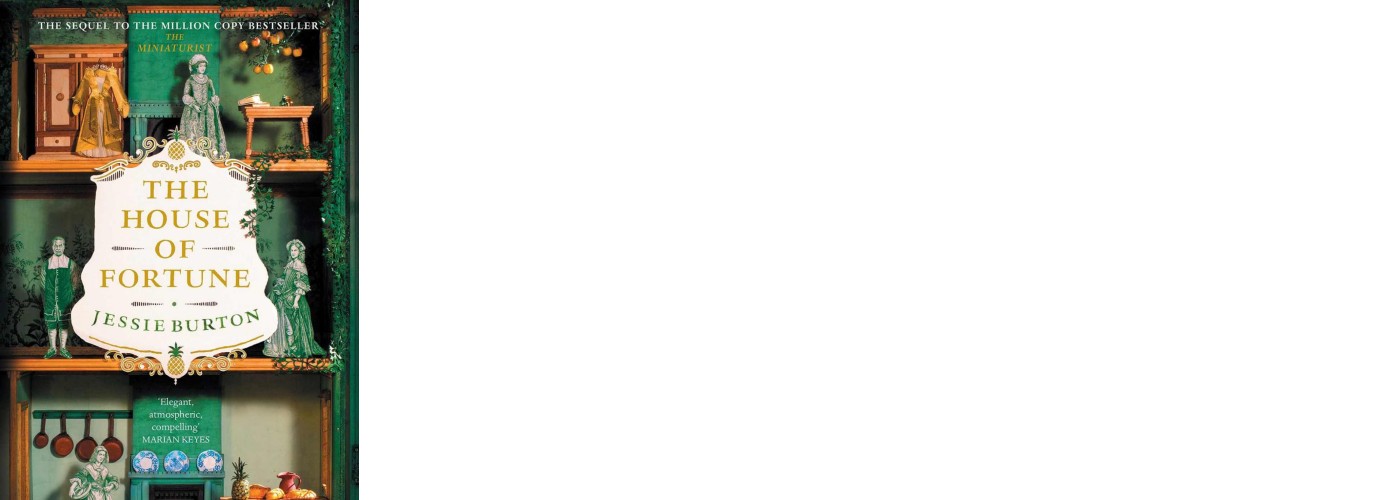
In 2014, Jessie Burton’s debut novel The Miniaturist – about 18-year-old Nella Oortman’s coming of age in 17th century Amsterdam – became a global bestseller, said Gwendolyn Smith in The i Paper. Now Burton is back, with a “beguiling, tender sequel”, set 18 years later. Nella, now 37, is a widow (The Miniaturist climaxed with her husband’s execution for sodomy), who still lives in the “same grand address on Amsterdam’s Herengracht canal”. A “cold, austere place” in the previous book, the house is now suffused with “warmth and familiarity” – though it still “thrums with secrets”. “Wise and fabulously immersive”, this book, if anything, surpasses its predecessor.
I disagree, said Claire Allfree in The Daily Telegraph. Burton remains a “lovely writer”, who can craft “startlingly sculptural” sentences. But “where The Miniaturist was alive with spooky mystery”, this book lacks an “animating spirit”: characters, events and even the language seem contrived. “In seeking to bring more life to the characters in The Miniaturist, The House of Fortune somehow diminishes them instead.”
Picador 400pp £16.99; The Week Bookshop £13.99
26. The Seaplane on Final Approach by Rebecca Rukeyser
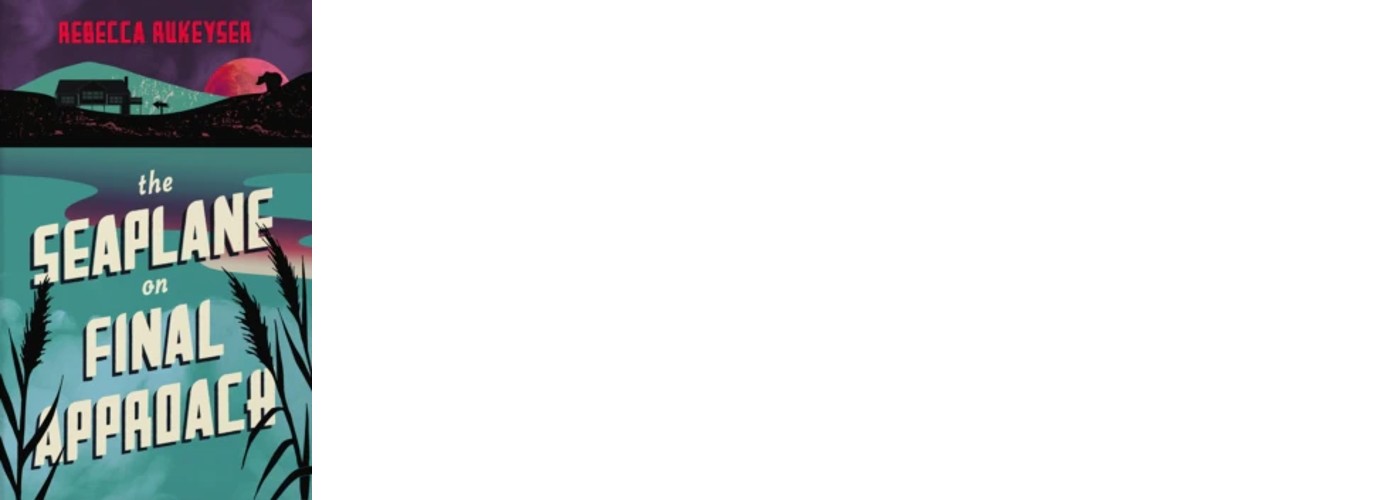
Set in the Alaskan wilderness, Rebecca Rukeyser’s “wistful and sardonic” first novel is part adventure story, part coming-of-age tale, said The Irish Times. Seventeen-year-old Mira is working for the summer at a guest house run by a married couple, Stu and Maureen, alongside two other girls and a troubled chef. Much of her time is spent fantasising sexually about a boy she met the year before. Rukeyser’s descriptive prose is assured and elegant, and the story becomes increasingly tense, as Stu’s predatory behaviour towards the girls becomes apparent.
Mira’s adolescent yearning is well captured in this quirky, wry debut, said Siobhan Murphy in The Times. Rukeyser provides a “deftly juggled” mixture of merciless judgement and gentle compassion for her characters’ failings. There’s also plenty of comedy, said Cal Revely-Calder in The Sunday Telegraph, though the story becomes more “mature and melancholy” as it progresses. The Seaplane on Final Approach is about how “desire ruins everything”. And when the finale arrives, it is “catastrophic” – but it also provides “lengthy, gruesome fun”.
Granta 288pp £12.99; The Week Bookshop £9.99
27. The Young Accomplice by Benjamin Wood
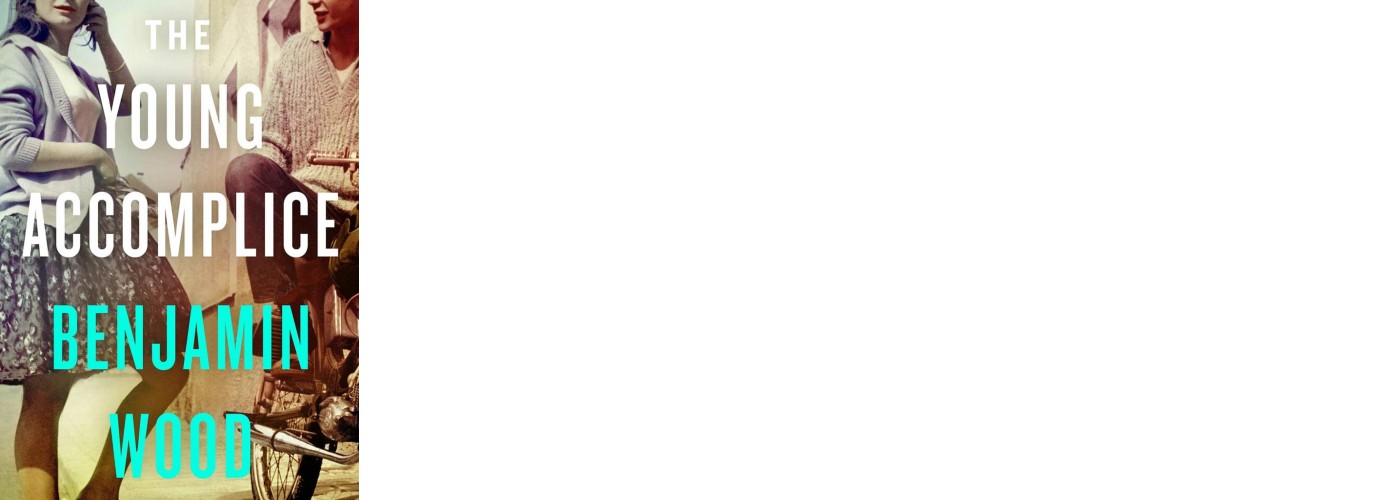
“Few people outside the literary world” have heard of 41-year-old novelist Benjamin Wood, said Johanna Thomas-Corr in The Sunday Times. That’s a shame, because he’s “wonderful”. Already the author of “three richly layered novels”, he has now written a fourth, The Young Accomplice, which is “his most original yet”. Set in the 1950s, it centres on Arthur and Florence Mayhood, “childless architects in their 30s” who, inspired by Frank Lloyd Wright, dream of creating a communal-living project on their Surrey farm. To help them realise this ambition, they invite a pair of borstal leavers – brother and sister Charlie and Joyce Savigear – to live with them; unsurprisingly, things go wrong.
Compared with Wood’s previous novels, which blended “storytelling punch with literary sensibility”, this book at times feels muted, said John Self in The Times. Wood spends a lot of time in his characters’ heads; you wish for a bit more action. Still, there are compensations: the characters feel like “real people”, who you miss when they’re gone. This is a book that “digs its claws into you and sticks there”.
Viking 368pp £16.99; The Week Bookshop £13.99
28. The Sidekick by Benjamin Markovits
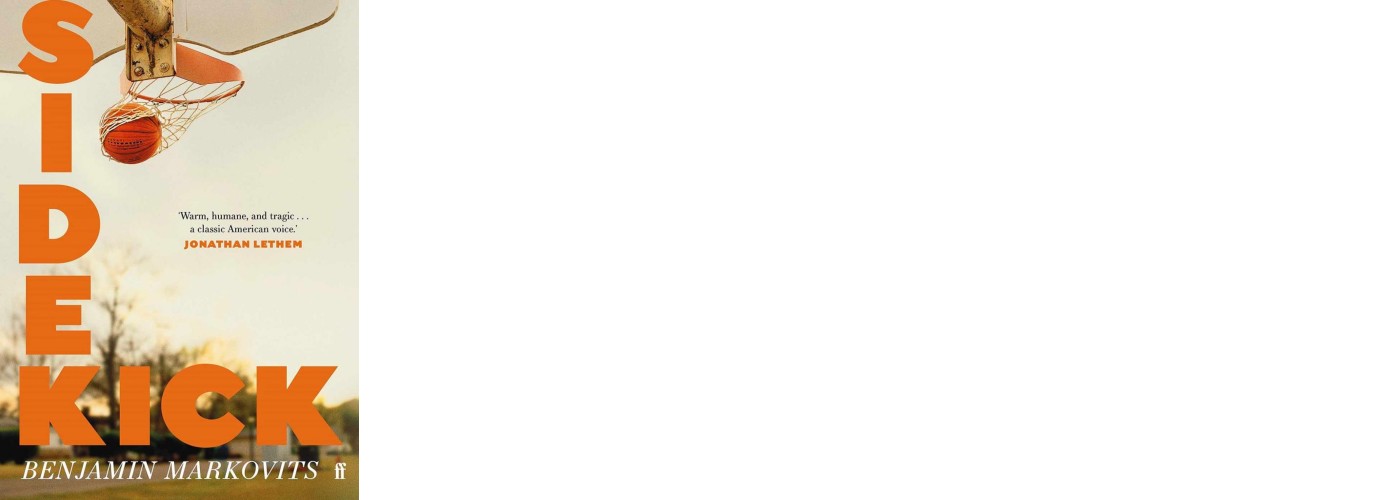
Benjamin Markovits’s latest novel is a “compelling account of relative failure”, said Joseph Owen in Literary Review. Brian, the narrator, is a “big fat slow” Jewish kid from Austin, Texas, who becomes childhood friends with Marcus Hayes, his high school’s basketball star. Marcus is black, and from a broken home – for a while he lives with Brian’s family – but in adulthood, when Marcus becomes an “NBA superstar”, Brian is merely a “semi-successful” sportswriter. The novel convincingly portrays Brian’s “inhibited world-view”, which is “tainted by jealousy” of his friend. The result is a “bleak, amusing, ultimately absorbing read”.
This is a novel with the “topography of a classic American story”, said Stuart Evers in The Spectator: “sport as a metaphor for the fracture of the US; friendship as a microcosm of race relations”. It feels a little dated – a bit “male and white” – and the “detailed descriptions of basketball” could put some people off. In the final act, though, when Markovits unveils “his A-game”, the novel “ignites into something compelling and emotionally resonant”.
Faber 361pp £18.99; The Week Bookshop £14.99
29. Nonfiction: A Novel by Julie Myerson
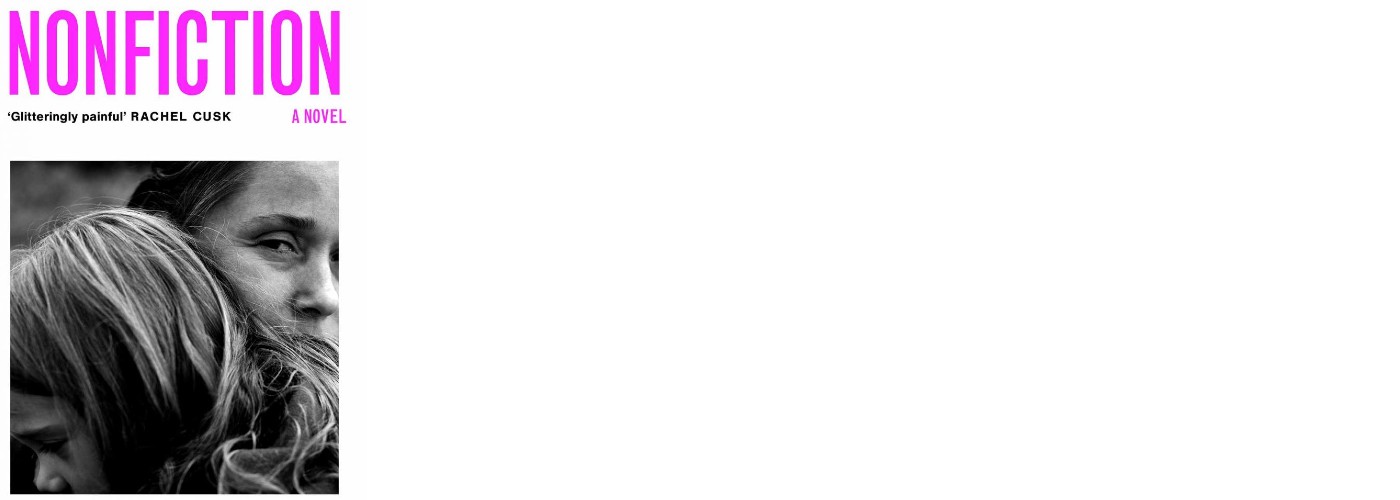
In 2009, the novelist Julie Myerson found herself at the centre of a media storm after publishing a non-fiction account of her eldest son’s addiction to marijuana, said Hephzibah Anderson in The Observer. The episode, she has said, drove her to a “kind of breakdown”, and she has never directly addressed it in her writing. Except that now, in a way, she has. This, her 11th novel – entitled Nonfiction – is all about “teenage drug addiction”. The narrator is a once “happily married” writer, who is looking back on her attempts to save her heroin-addicted daughter “from self-destruction”. Given her own backstory, Myerson is risking a lot with such a novel – but “the results are nothing less than incandescent”.
The title is confusing, and deliberately so, said Alex Peake-Tomkinson in The Spectator. This is Myerson’s “squarest attempt so far at autobiographical fiction”. Yet in other ways, it seems a typical work: she has always explored “her worst fears in her novels”. Although I hope she will “look beyond her own life” in future, I found this a “satisfyingly propulsive” read.
Corsair 288pp £16.99; The Week Bookshop £13.99
30. You Have a Friend in 10A by Maggie Shipstead
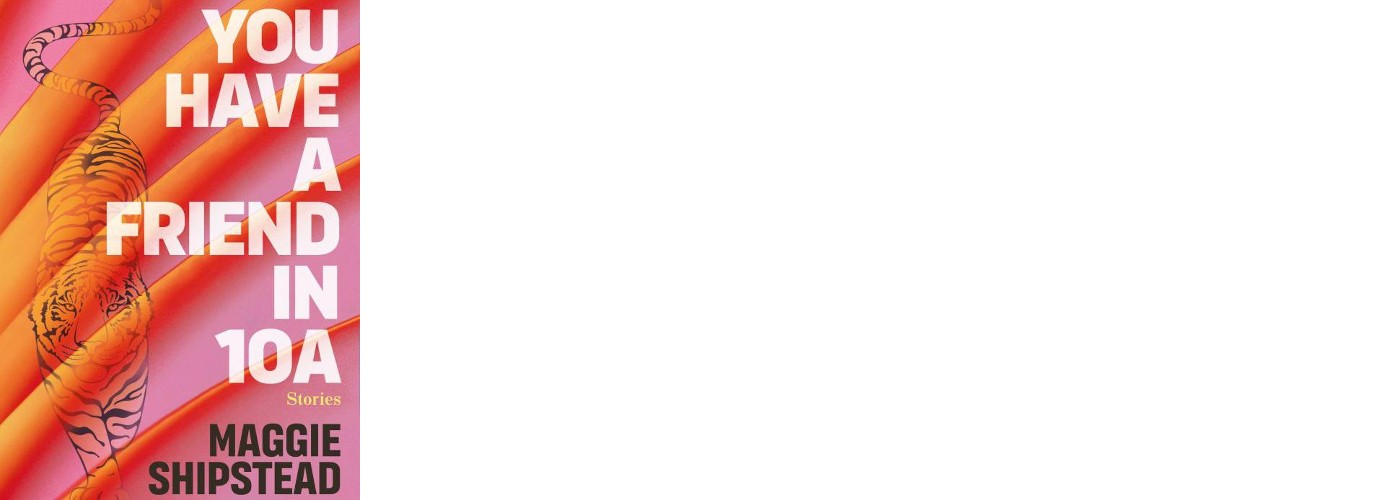
Maggie Shipstead’s “thrilling” historical epic, Great Circle, not only earned her a place on last year’s Booker shortlist, but also “proved a huge hit with readers”, said Lucy Scholes in the Financial Times. So it’s “savvy” of her publisher to bring out this collection of her short stories, written over the past 13 years. The tales vary widely in tone and setting – they transport us “from the catacombs of Paris, via an Olympic Village, to a guano island in the middle of the Pacific” – but taken together, they forcefully illustrate the “remarkable scope of Shipstead’s imagination and talent”.
While one or two of these stories seem a bit “too self-conscious”, most are superb, said Lizzy Harding in The New York Times. In the “sure standout”, “La Moretta”, a young couple’s honeymoon in Romania “transforms into folk horror à la The Wicker Man”. Shipstead has an “unnerving ability to capture a character’s inner life in a few choice phrases”, said Stephanie Merritt in The Observer. “It’s a rare writer who can create a world as convincingly over a few pages as in a 600-page novel.”
Doubleday 288pp £16.99; The Week Bookshop £13.99
31. Very Cold People by Sarah Manguso
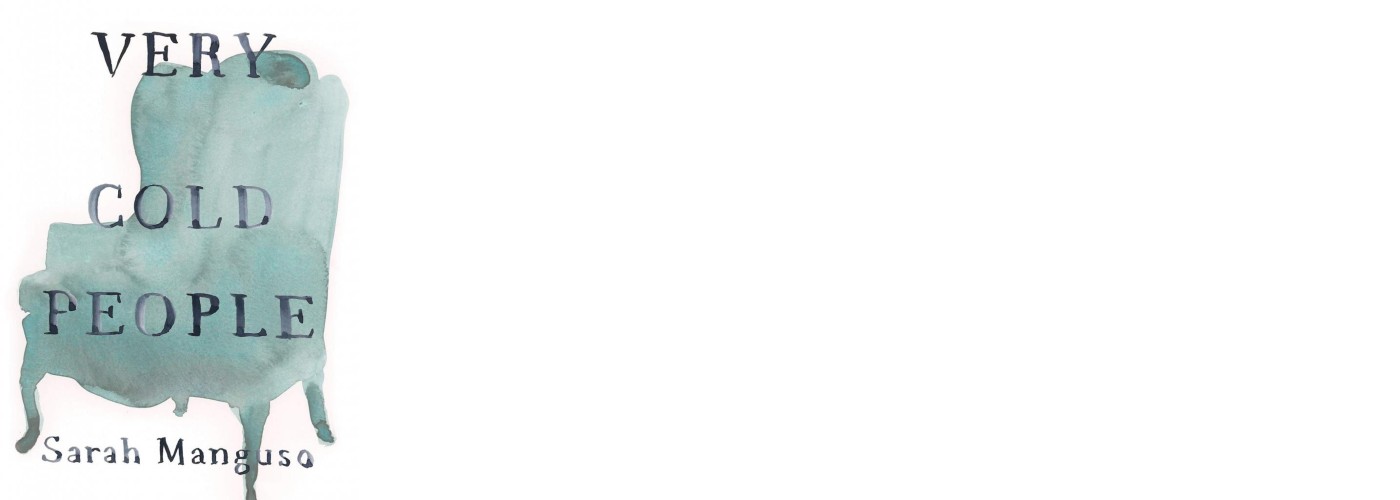
This “creepy coming-of-age tale” unfolds like a “darker version of Roald Dahl’s Matilda”, except with “no Miss Honey coming to the rescue”, said Johanna Thomas-Corr in The Observer. Set in an “icy” Massachusetts town in the 1980s, it is narrated by Ruthie, an only child whose family is “on the edge of poverty”. Ruthie is an assiduous cataloguer of “everything she sees” – her mother’s lumpy body, her awkward dinners with richer school friends – but she doesn’t always understand the significance of what she sees. Marked by its “pitiless, minutely observed prose”, Very Cold People is a work that “will stay with me for a very long time”.
Manguso is especially good at evoking the “constraints and cruelties” of Ruthie’s home life, said Alexandra Jacobs in The New York Times. So successfully does she portray “boring old daily pain” that it almost seems redundant when “more dramatic plot-turns arrive” towards the end of the book. Very Cold People is at its best simply as a “compendium of the insults of a deprived childhood: a thousand cuts exquisitely observed and survived”.
Picador 208pp £14.99; The Week Bookshop £11.99
32. Trespasses by Louise Kennedy
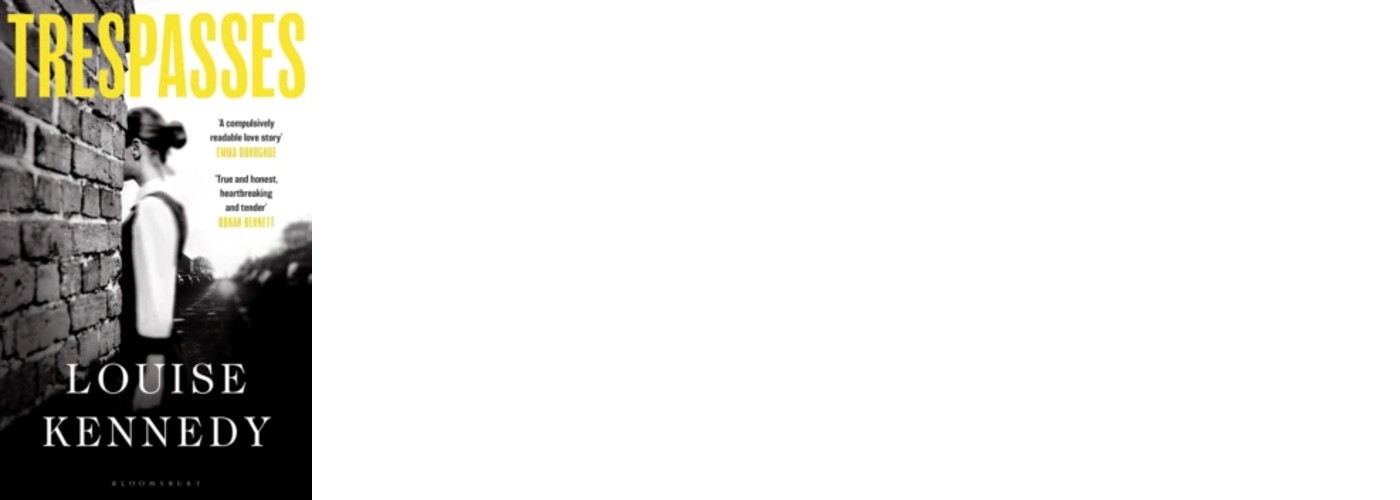
The Irish writer Louise Kennedy only began writing aged 47, but her rise has been meteoric, said Madeleine Feeny in The Spectator. The End of the World is a Cul de Sac, her debut short story collection, was “fought over” by nine publishers. And now, with this first novel, she has written what promises to be another hit. Plot-wise, Trespasses doesn’t break new ground, said Kevin Power in The Guardian: set near Belfast in 1975, it’s about a young Catholic primary school teacher who falls in love with a posh Protestant barrister. What distinguishes it is its “sense of utter conviction”. This is a story “told with such compulsive attention to the textures of its world that every page feels like a moral and intellectual event”.
Kennedy is a superbly visual writer, and her “idiomatic dialogue gives her prose real verve”, said Hephzibah Anderson in The Observer: the protagonist’s mother, catching sight of Helen Mirren on a chat show, describes her as a “dirty article”. Combining “unflinching authenticity” with a “flair for detail”, this is a “deftly calibrated” and ultimately “devastating” novel.
Bloomsbury 320pp £14.99; The Week Bookshop £11.99
33. Elizabeth Finch by Julian Barnes
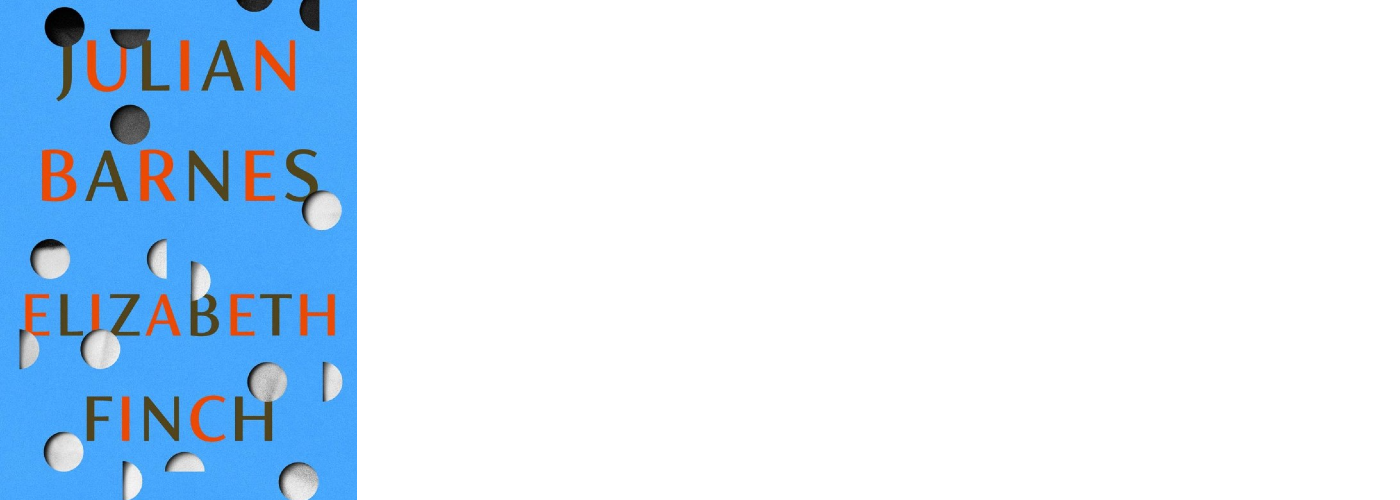
Julian Barnes’s latest is that “old-fashioned thing, a novel of ideas”, said John Self in The Times. It is narrated by Neil, a former actor, but is really all about Elizabeth Finch, the “lecturer on a course on culture and civilisation that Neil took decades earlier”. Finch, who is “probably inspired” by Barnes’s friend, the late novelist Anita Brookner, is remembered as an inspirational teacher, someone “who obliged us – simply by example – to seek and find within ourselves a centre of seriousness”. Neil recalls their sort-of friendship – they occasionally met for lunch – and describes his quest, in the present day, to find out more about Finch in the wake of her death. Very much a “thinky” novel, Elizabeth Finch may be “rather less fun” than most of Barnes’s books, but it “offers plenty to chew on”.
“Part of the challenge of rendering a brilliantly inspirational teacher is making them sufficiently brilliant and inspirational,” said Sameer Rahim in The Daily Telegraph. Despite Neil’s insistence on Finch’s originality, “what she actually says tends to fall flat”. “She told me that love is all there is. It’s the only thing that matters,” a classmate of Neil recalls. The novel is further let down by its baffling middle section, which consists of Neil’s “stolid student essay” on the fourth century Roman emperor Julian the Apostate, whom Finch regarded as a kindred spirit, said Sam Byers in The Guardian.
It all adds up to a “work stubbornly determined to deny us its pleasures”. I disagree, said Peter Kemp in The Sunday Times. As a teacher, Finch “blazes with vividness”, and Neil’s essay is a “bravura exercise in nimbly handled erudition”. Elizabeth Finch “celebrates the cast of mind” – subtle, sceptical and ironic – that “Barnes most prizes”.
Jonathan Cape 192pp £16.99; The Week bookshop £13.99
34. The Candy House by Jennifer Egan
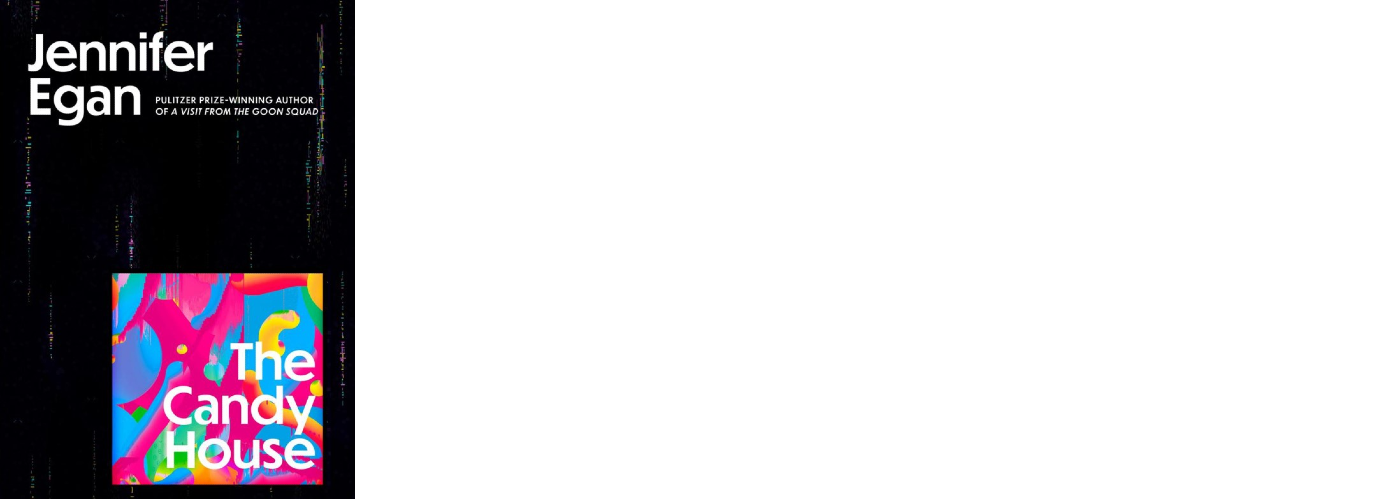
Jennifer Egan’s new novel is a “sibling novel” to A Visit From the Goon Squad, her bestselling 2010 novel about rock music, “Gen-X nostalgia” and the “digitalisation of everything”, said Dwight Garner in The New York Times. Consisting of interrelated short stories which zigzag about in time, it resembles its predecessor in structure – and features many of the same characters. But at its centre is a new figure: the “Mark Zuckerberg-like” Bix Bouton, whose company, Mandala, has created an “implausible” device known as Own Your Unconscious, which lets users upload their own and other people’s memories, and “watch them all like movies”.
The sci-fi aspects of the book are neither new nor “particularly fully realised”, said Andrew Billen in The Times: memory uploads have been tackled better elsewhere. But this is essentially a book of short stories, and most of them are excellent and “brain-stretching”. What “really astounds is the visual brilliance of Egan’s writing across these disparate tales”. She won a Pulitzer for A Visit From the Goon Squad; I hope this book “wins another”.
Corsaid 352pp £20; The Week Bookshop £15.99
35. Companion Piece by Ali Smith
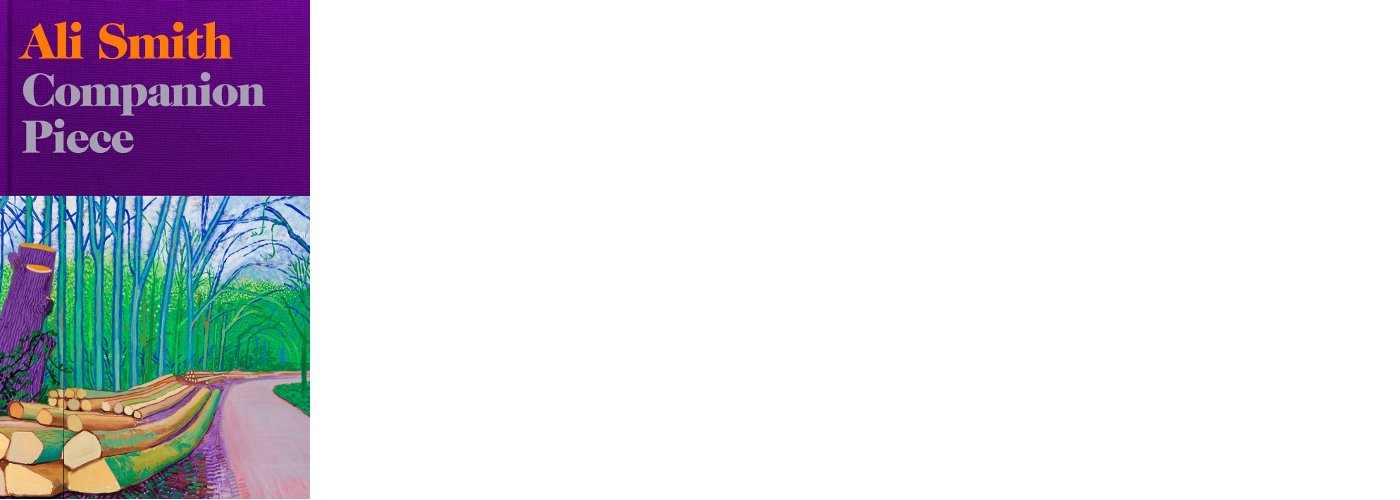
Ali Smith’s first novel since her “extraordinary Seasonal Quartet” has a fitting title, said Alex Preston in The Observer, as it “springs from the same source as its predecessors”. Like them, it was “written and published swiftly”, to cram in recent events. It’s 2021, and Sandy, an artist, is “struggling through lockdown”. Her father is in hospital following a heart attack – and she “only has his dog for company”. Smith skilfully evokes the grim monotony of pandemic life, said Catherine Taylor in the FT – from the “regularity of testing” to “the exhaustion of medical staff”.
Much of the plot concerns Sandy’s “renewed acquaintance” with an old university friend Martina, who gets in touch to tell her about her recent interrogation by UK border police, said Philip Hensher in The Daily Telegraph. This leads to Sandy meeting Martina’s twin daughters, Eden and Lea, who are full of “millennial” rage and entitlement. Covering a “lot of contemporary ground”, Companion Piece offers an entertaining portrait of the “world we live in, by the most beguiling and likeable of novelistic intelligences”.
Hamish Hamilton 400pp £16.99; The Week Bookshop £13.99
36. Young Mungo by Douglas Stuart
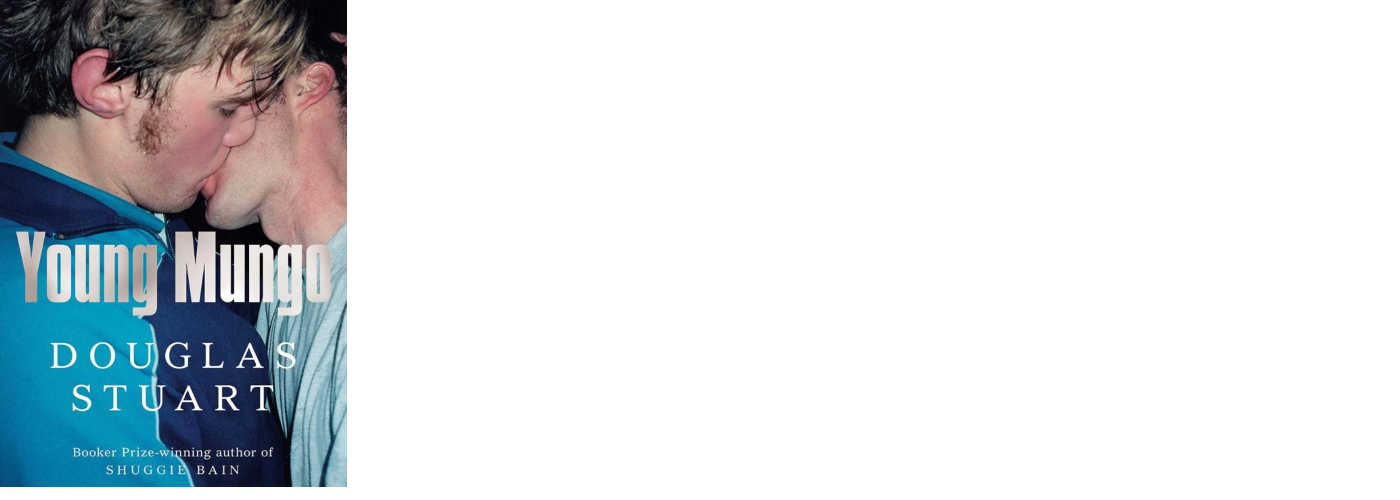
Douglas Stuart’s debut, Shuggie Bain – the winner of the 2020 Booker Prize – was a “bleak autobiographical novel about a young boy caring for his alcoholic mother in 1980s Glasgow”, said Johanna Thomas-Corr in The Sunday Times. His follow-up is “cut from the same cloth”.
Fifteen-year-old Mungo lives with his mother and two older siblings in Glasgow’s East End. “His brother, Hamish, is a Faginesque Protestant gang leader; his sister, Jodie, is a do-gooding fallen angel; and their mother, Mo-Maw, is a woman ruined by alcohol.” As the novel opens, Mungo is shooed off by his mother on a fishing trip with two menacing strangers from her Alcoholics Anonymous group, who promise to teach him “masculine pursuits”.
Interspersed with this “gruesome excursion” are chapters set a few months earlier, detailing Mungo’s first love affair, with a Catholic neighbour called James. Although this “alternating timeline” feels forced at times, this is still a “richly abundant” work packed with fine writing and “colourful characters”.
It may be felt – with some justification – that Stuart has written the same book twice, said Nikhil Krishnan in The Daily Telegraph. Yet he “makes small differences count”. Because Mungo is older than Shuggie, he is able to see in his sexuality “not just a source of difference and alienation, but a possible route to escape and emancipation”. And Stuart widens his focus beyond family life, taking in the “Jets and Sharks world” of Glasgow’s sectarian politics.
Like its predecessor, this “bear hug of a new novel” has a “yeasty whiff of the autobiographical” about it, said Hillary Kelly in the Los Angeles Times. If you adored Shuggie Bain, this book “will please you on every page”.
Picador 400pp £16.99; The Week bookshop £13.99
37. Sell Us the Rope by Stephen May
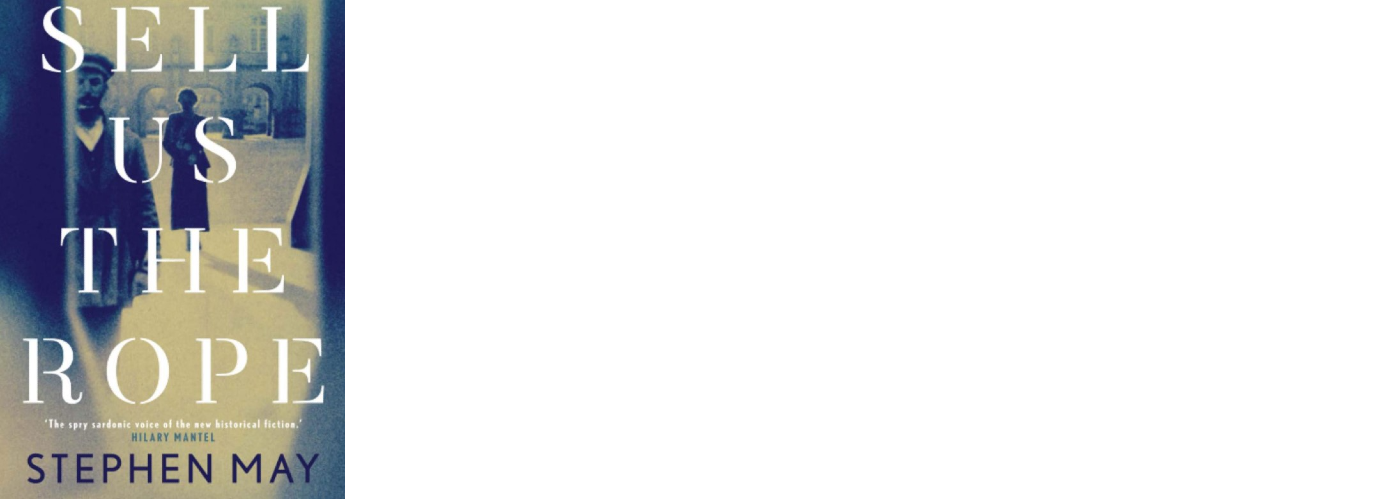
Joseph Stalin “never spoke or wrote” about the two months he spent in London in the spring of 1907, attending the 5th Congress of the Russian Social Democratic Labour Party, said Alasdair Lees in The Daily Telegraph. Into this “psychological aperture” steps Stephan May, whose sixth novel is an “openly confected” retelling of those “few overlooked weeks”.
It begins with a 29-year-old Stalin – then known by his nickname, Koba – landing at Harwich, fresh from “a campaign of terror and banditry” in his native Georgia. In London, he stays in a dosshouse in Stepney, while better-off attendees – including Lenin – lodge in Bloomsbury. May’s Stalin is a “figure of fascinating contradictions” – an “idealist and a thug” – and the novel a “captivating thought experiment”.
Sadly, it often falls “disappointingly flat”, said Simon Baker in Literary Review. There are “samey descriptions” of London’s “awful” pubs, and May makes too much use of summary. Despite having the makings of an “exciting political thriller”, the novel isn’t convincing enough for May’s story to really grow.
Sandstone 288pp £8.99; The Week Bookshop £6.99
38. French Braid by Anne Tyler
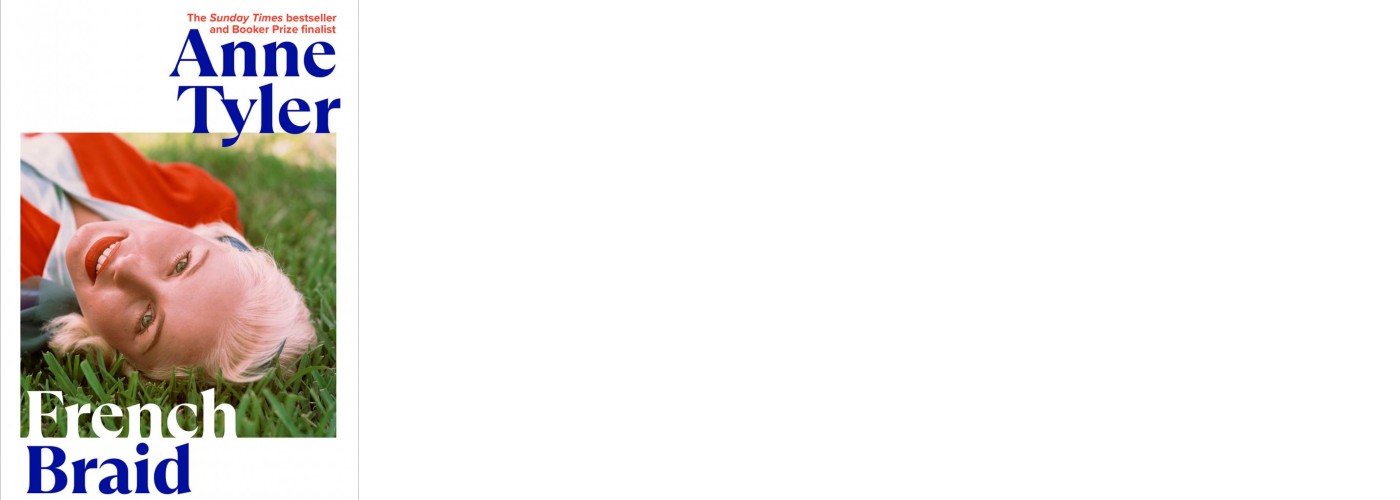
Anne Tyler virtually created the “family novel” genre, but has “strayed into more diverse territory recently”, said Melissa Katsoulis in The Times. Fans will be delighted by the 80-year-old’s 24th novel, which marks a return to type. Set, almost inevitably, in Baltimore, it’s a multi-generational saga spanning six decades, about a “comfortingly average” family. Mercy and Robin Garrett “enjoy a smoothly conventional life” running a hardware store and raising their three children. But theirs is a family in which “certain things must never be said”, and as the decades pass, this creates division. French Braid is “Tyler at her most Tyler-ish: pleasant and inoffensive, yet surprisingly deep and moving”.
Near its end, the novel does take an unexpected turn, said Anthony Cummins in The Observer. Its final chapters are set during Covid – a topic Tyler suggested she’d never write about. Typically, however, she emphasises not the pandemic’s harrowing side, but its “potential to occasion reunion and reconnection”. This book may fall short of her best work – but “at this point any Tyler book is a gift”.
Chatto & Windus 256pp £16.99; The Week Bookshop £13.99
39. Good Intentions by Kasim Ali
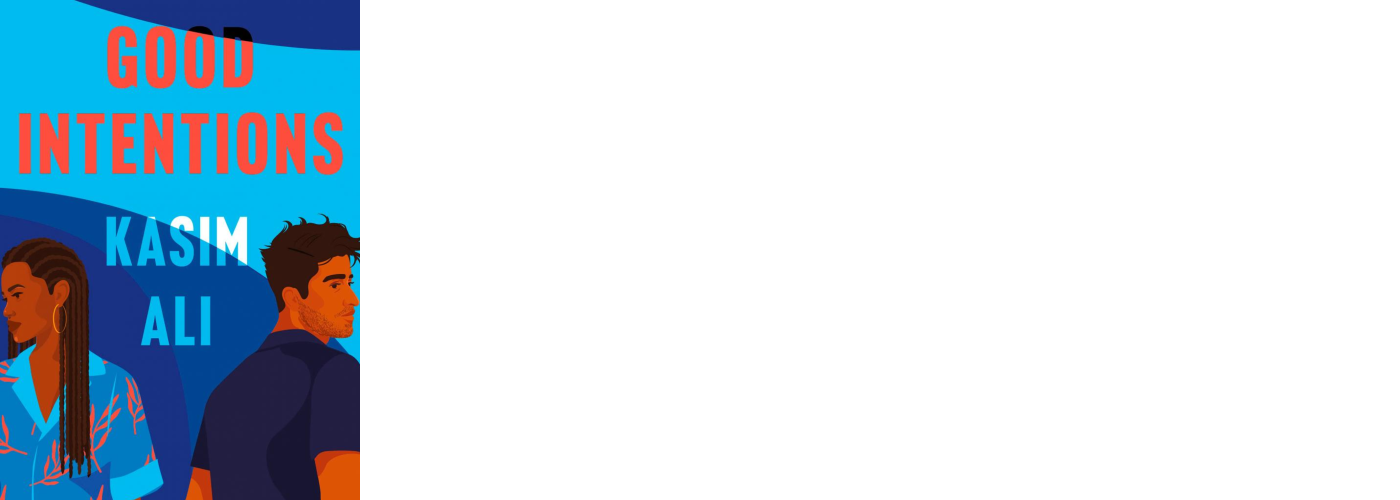
This “eagerly awaited” debut is being hailed as “part of a wave of novels by young men of colour exploring race, romance and mental health problems”, said Johanna Thomas-Corr in The Sunday Times. Nur, a 25-year-old online journalist from Birmingham who regularly suffers panic attacks, has been with Yasmina for four years. But he has yet to tell his Pakistani parents about the relationship: Yasmina’s family is Sudanese, and Nur has never got over his “mother’s disgust when she saw him hanging out with a black girl at school”.
On the surface a “poignant romance” about the barriers standing in the way of two young lovers, Good Intentions gradually reveals itself to be a deeper novel – about how an obsession with vulnerability can “make you forget your responsibility to others”.
Ali’s characters are “well-drawn”, and “what a tonic” to have a book about race in Britain set outside the capital, said Siobhan Murphy in The Times. Unfortunately, though, the unnecessarily complex structure necessitates a lot of darting “between points on the timeline” – and this, alas makes the novel rather “confusing”.
4th Estate 352pp £14.99; The Week Bookshop £11.99
40. The School for Good Mothers by Jessamine Chan
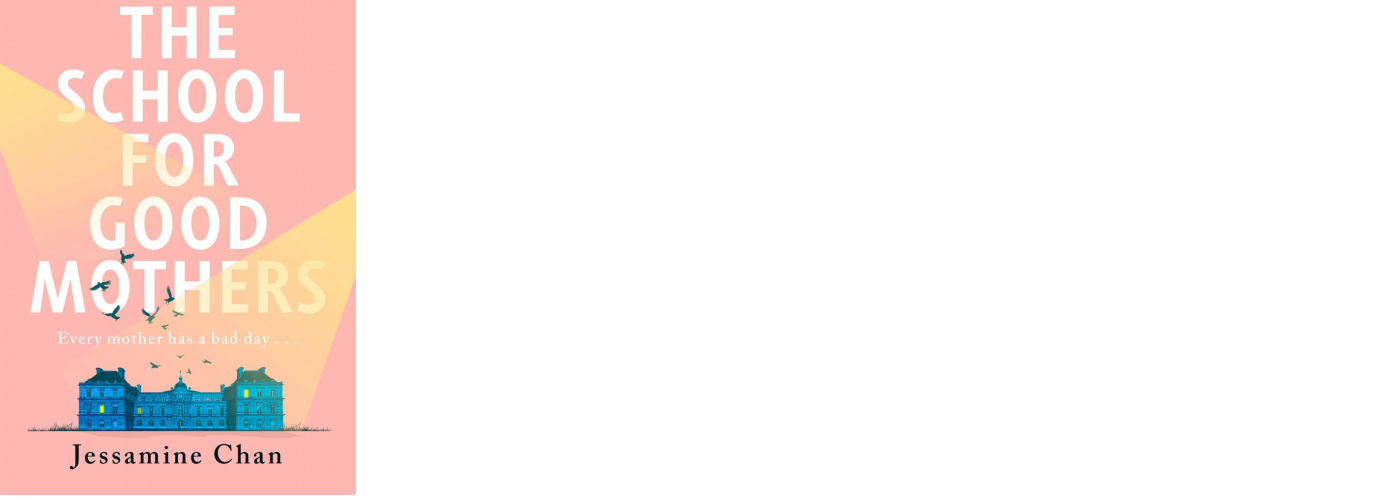
Jessamine Chan’s “crafty and spellbinding” debut is set in a terrifyingly plausible dystopian America, said Molly Young in The New York Times. Frida Liu is a 39-year-old single mother with an 18-month-old daughter and a stressful job. One day, in a “spell of insomnia-induced irrationality”, she leaves her daughter unattended at home while running a work errand.
Neighbours hear the toddler crying, and alert the police. Frida is sentenced to a year in an “experimental rehab facility”, where women are moulded into better mothers by practising their parenting skills on AI dolls. The school continually berates Frida for her actions: her kisses, instructors tell her, “lack a fiery core of maternal love”.
It’s no surprise that this book has been “making waves” in the US, said Madeleine Feeny in The Daily Telegraph: “questions of how we define and evaluate motherhood pervade contemporary culture”. Beautifully lucid and elegantly written, this is a “must-read” novel, said India Knight in The Sunday Times – “a Handmaid’s Tale for the 21st century”.
Hutchinson Heinemann 336pp £12.99; The Week Bookshop £9.99
41. Pure Colour by Sheila Heti
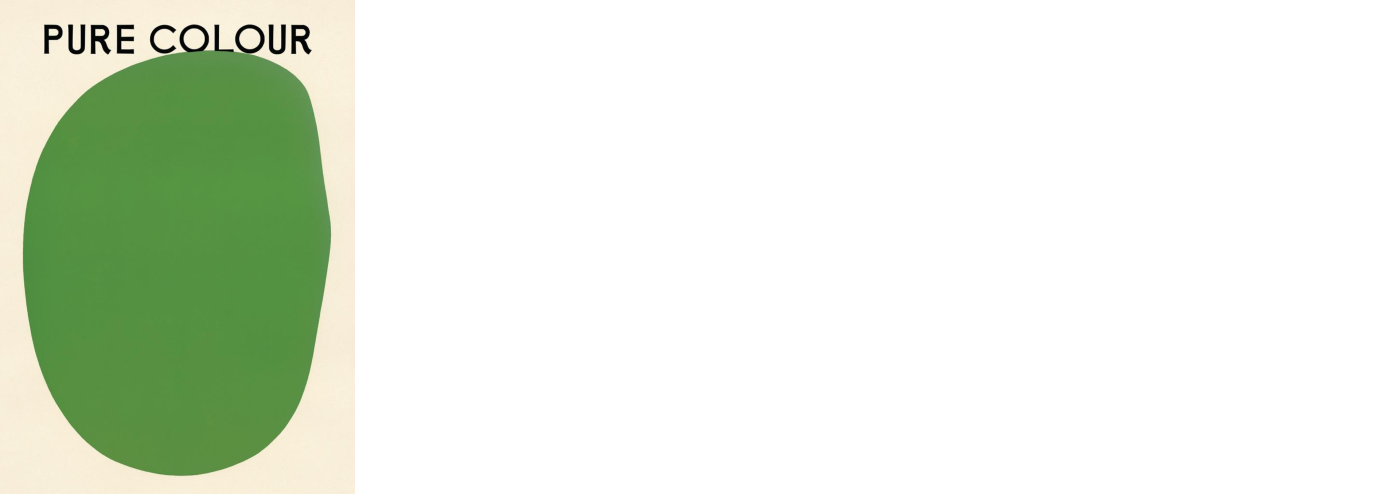
The Canadian writer Sheila Heti’s latest is “an original”, said Anne Enright in The Guardian. It’s a short novel about grief in which plot often gives way to “mystical” digressions that are “earnest, funny and sweet” – “a bit mad”, but in a good way.
Mira, a solitary woman in midlife, falls in love with Annie, a fellow student at their school for art criticism. Then Mira’s father dies, and his spirit joins her own inside a leaf, where they converse about “art, God, love and the transmigration of souls”, before Mira returns to “the pursuit of love”, her faith in “family and tradition” strengthened.
Billed as “a philosopher of modern experience”, Heti is known for her auto-fictional novels such as How Should a Person Be? (2010). Pure Colour is more like a fable, said Mia Levitin in the FT, in which God is an artist, and this world is his “first draft”, now “heating up in advance of its destruction”. Sadly, the book’s “meditations on grief” left me cold, and I found the prose “clunky” and “perilously close to kitsch”, with a naive, fairy-tale quality ill-suited to a story about middle age.
Harvill Secker 224pp £16.99; The Week Bookshop £13.99
42. A Previous Life by Edmund White
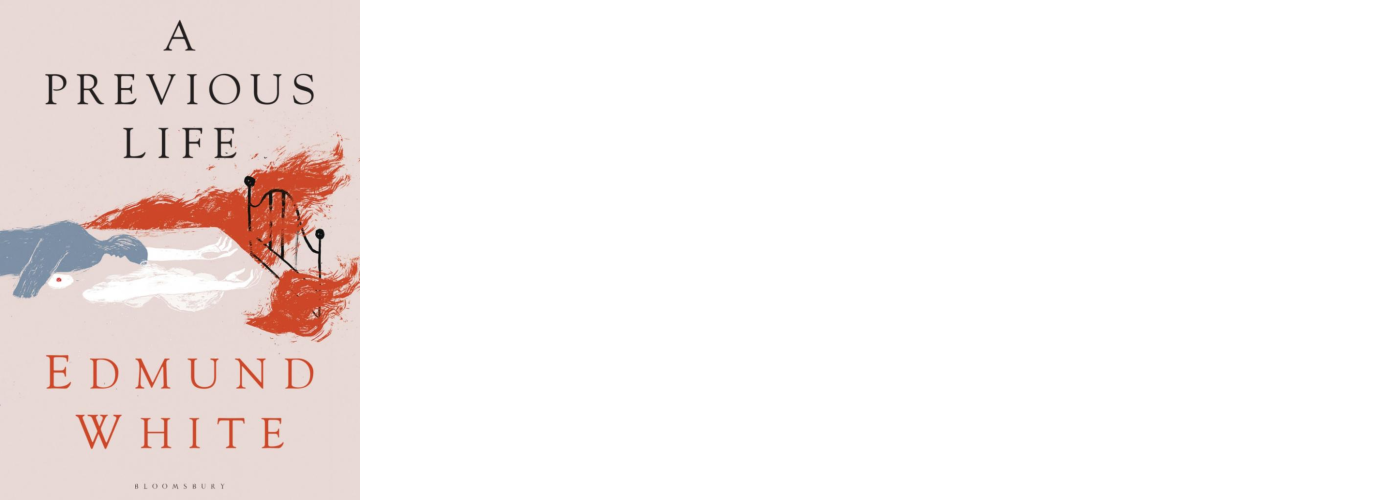
Back in the 1970s and 1980s, Edmund White’s novels “forever enlarged what gay writing might do”, said Neil Bartlett in The Guardian. His latest book – “his 30th, by my count” – is an “elegant, filthy” work that “crackles with a heartfelt insistence that the old and hungry” still have much to tell us about “the dynamics of sex”.
In the year 2050, a married couple in a remote Swiss chalet decide to entertain each other by recounting their “previous sexual careers”. Constance, in her early 30s, is an “African-American orphan”, while Ruggero, her husband, is an elderly bisexual Sicilian aristocrat who is “legendarily well-connected (not to mention well hung)”.
As you’d expect, this novel is “elegantly written”, and contains many “arresting images”, said Peter Parker in The Spectator – but it’s fairly “preposterous”. The leap forward in time is merely a device allowing Ruggero to reminisce about his affair 30 years earlier with the now-forgotten writer Edmund White, then old and infirm: a “fat, famous slug”, he calls him. It is, however, all very entertaining.
Bloomsbury 288pp £18.99; The Week Bookshop £14.99
43. A Class of Their Own by Matt Knott
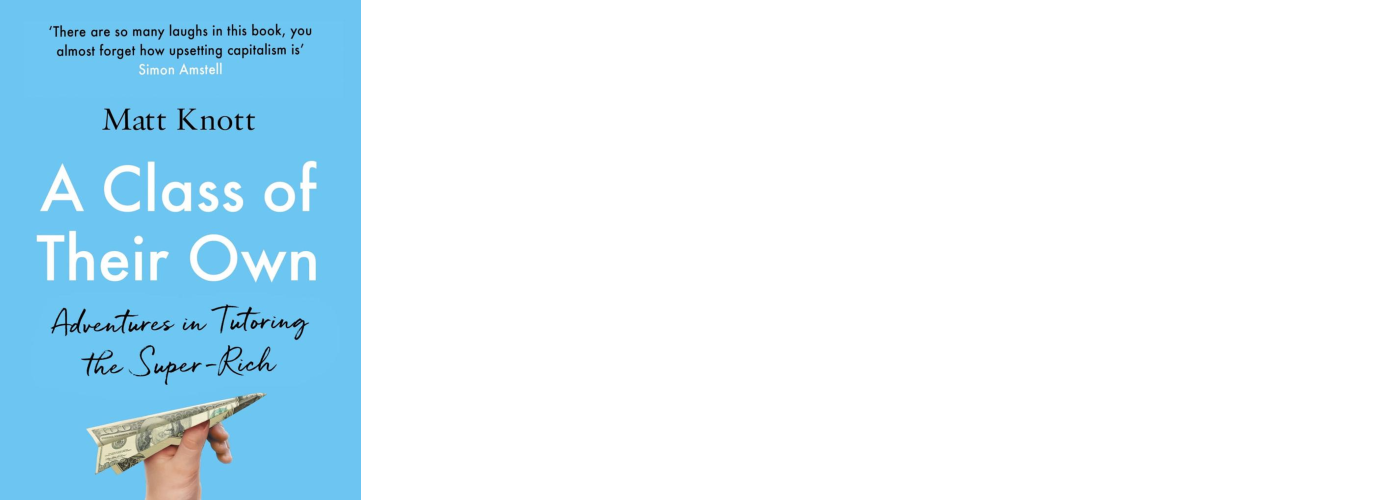
Unsure what to do after graduating, Matt Knott alighted on tutoring as an “easy way to make money”, said Georgia Beaufort in The Daily Telegraph. He duly joined an agency that specialised in finding “study buddies” for the children of the super-rich. With his “Cambridge degree and his floppy hair”, Knott proved a big success – and in this “very funny memoir”, he recounts his three years in the job.
His first assignment was in a house in Mayfair, where each day he sat in a “holding pool” of tutors waiting to see if he’d be picked to help a five-year-old with his homework. Other families were considerably friendlier: half servant, half family member, Knott accompanied his charges on various exotic holidays.
This amusing book sheds light on a ridiculous world of “butlers in very tight trousers” and “helicopter trips from Tuscan villas to smart restaurants in Rome”, said Roland White in the Daily Mail. In this milieu, five-year-olds eat lobster tempura for supper, and “PJs” stands for private jets instead of pyjamas. With his pleasing turn of phrase (these days he works as a screenwriter), Knott is a witty, observant guide.
Trapeze 336pp £16.99; The Week Bookshop £13.99
44. Our Country Friends by Gary Shteyngart
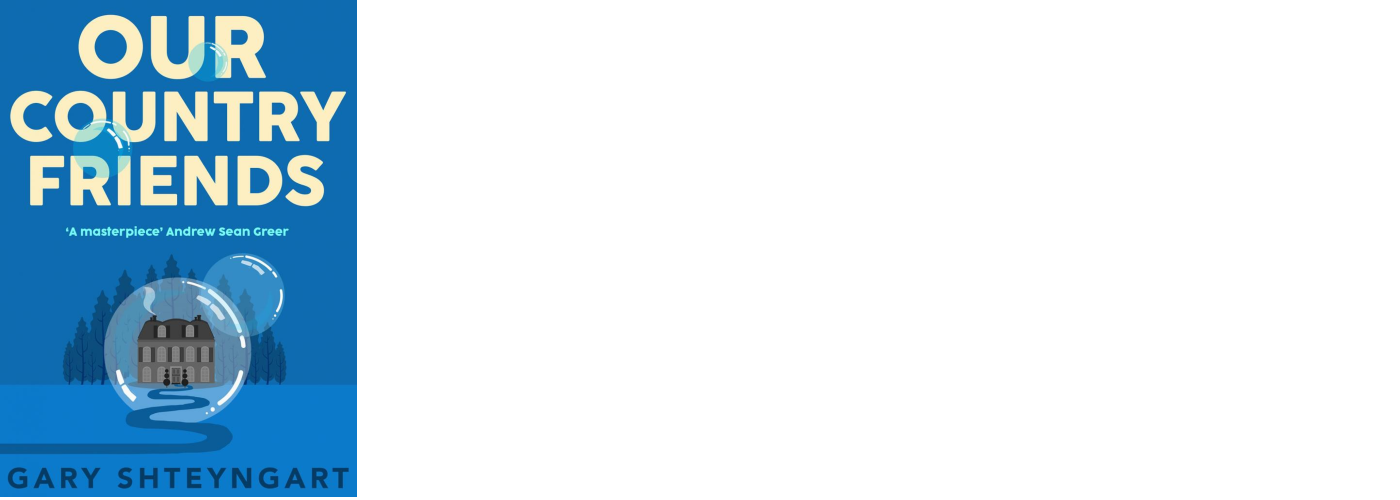
Gary Shteyngart’s fifth novel is set during the far-off-seeming “early days” of the Covid pandemic, said Claire Lowdon in The Sunday Times. Sasha Senderovsky, a successful Russian-born US novelist (like his creator), has retreated to his large house in upstate New York, accompanied by a group of friends. Their plan is to ride out lockdown together but, predictably, things go wrong.
Various housemates fall out with one another; “plenty of partner-swapping” occurs. If the basic conceit owes a lot to Chekhov, the novel’s boisterous, madcap comedy owes at least as much to A Midsummer Night’s Dream. Shteyngart has brilliantly captured the “almost maniacal aliveness” of the early pandemic. If anyone writes a funnier lockdown novel, “I will eat my face mask”.
There’s so much going on in this somewhat “messy” novel that at times it’s exhausting to read, said John Self in The Times. A “little more stillness” would have been welcome. Still, it exhibits Shteyngart’s trademark “feverish energy” – and the result is “often funny” and “sometimes moving”.
Allen & Unwin 336pp £14.99; The Week Bookshop £11.99
45. Scary Monsters by Michelle de Kretser
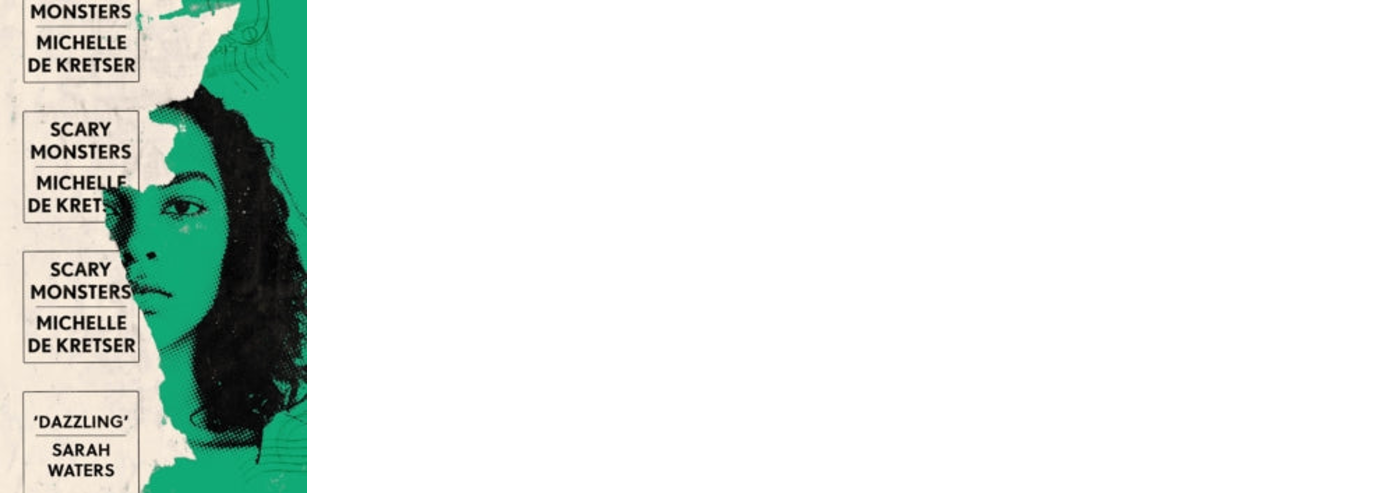
“Michelle de Kretser’s slyly intelligent sixth novel pairs two first-person narratives,” said Anthony Cummins in The Observer. One is set in “dystopian near-future Melbourne” and follows Lyle, an immigrant who works for a sinister government agency created to deport immigrants. The other is set in 1981, and follows Lili, a 22-year-old Australian, during a carefree sojourn in the south of France. The link between the two narratives is mysterious – and even the order you read them in is “up to you”, on account of the book’s “reversible, Kindle-defying two-way design”.
The publisher has been “fastidious” in cooperating with de Kretser’s conceit, said Sam Leith in The Daily Telegraph: there are two front covers, two copyright pages, two sets of acknowledgements, and so on. “It’s sort of magnificent, and it’s also sort of gimmicky” – and it left me unsure if I was actually reading a novel, or simply two novellas yoked together. Perhaps, though, it doesn’t really matter. Filled with “apt quick literary brushstrokes and the gleam of humour”, both halves are equally “terrific”.
Allen & Unwin 320pp £14.99; The Week Bookshop £11.99
46. Free Love by Tessa Hadley
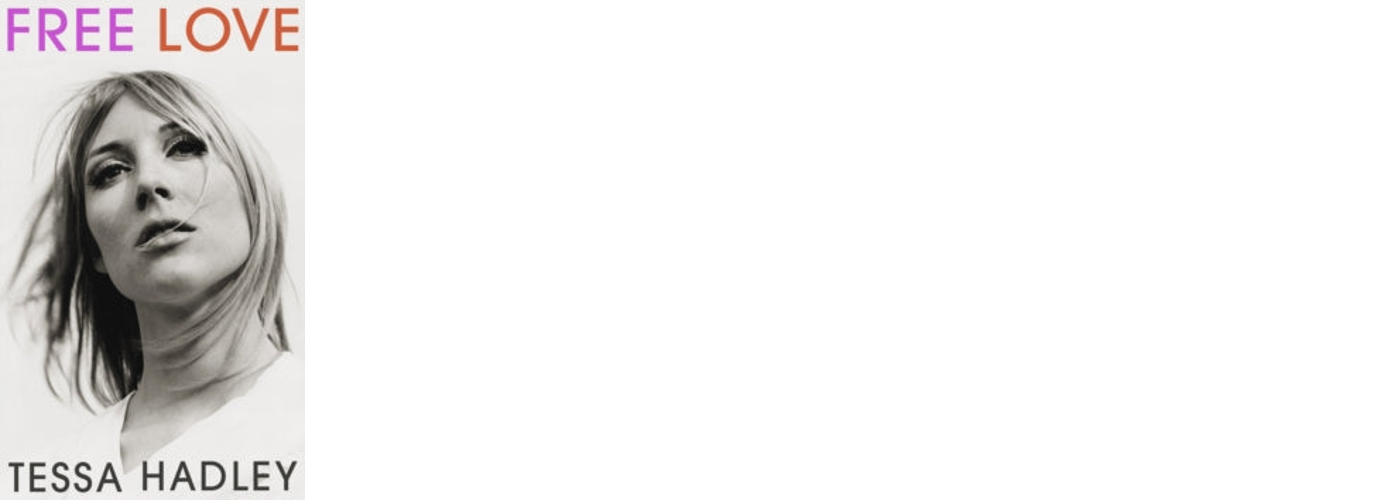
Tessa Hadley is justly lauded for “elevating the domestic novel to literary fiction” in her stories about the “shifting geometries” of middle-class families, said Mia Levitin in the FT. Free Love, her eighth novel, “adds a Sixties twist to Anna Karenina”. Set in 1967, it centres on 40-year-old Phyllis Fischer, a well-off suburban housewife married to Roger, a senior civil servant. One summer night, twenty-something Nicky – the son of a family friend – comes to supper. He and Phyllis steal an “illicit kiss” – and embark on an affair. Leaving home without a forwarding address, Phyllis swaps her cosy life with Roger for “then-bohemian Ladbroke Grove” (where Nicky occupies a squalid bedsit). Hadley’s style is as “sumptuous” as ever, and her characterisations are superb. While this isn’t perhaps her best novel, its publication is a “cause for celebration”.
Hadley has been criticised for the “narrowness of her social concerns – her incorrigible preoccupation with Cecilias, Harriets and Rolands”, said James Marriott in The Times. So it’s gratifying that in this “beautiful and exciting” novel, she contrasts the bourgeois world with the “supremely undomesticated” 1960s counterculture.
Yet there’s a problem, said Johanna Thomas-Corr in The Sunday Times: Hadley is far more at home among herbaceous borders than in the “pot-smoking” milieu of Nicky and his friends. Her depictions of the Swinging Sixties rarely rise above cliché – and “when she tries to capture the life of a black nurse whom Phyllis befriends, the writing becomes laboured”. You sense Hadley “itching to get back to the bourgeois suburbs” – and as this disappointing novel progressed, I wished I was back there with her.
Jonathan Cape 320pp £16.99; The Week Bookshop £13.99
47. The Fell by Sarah Moss
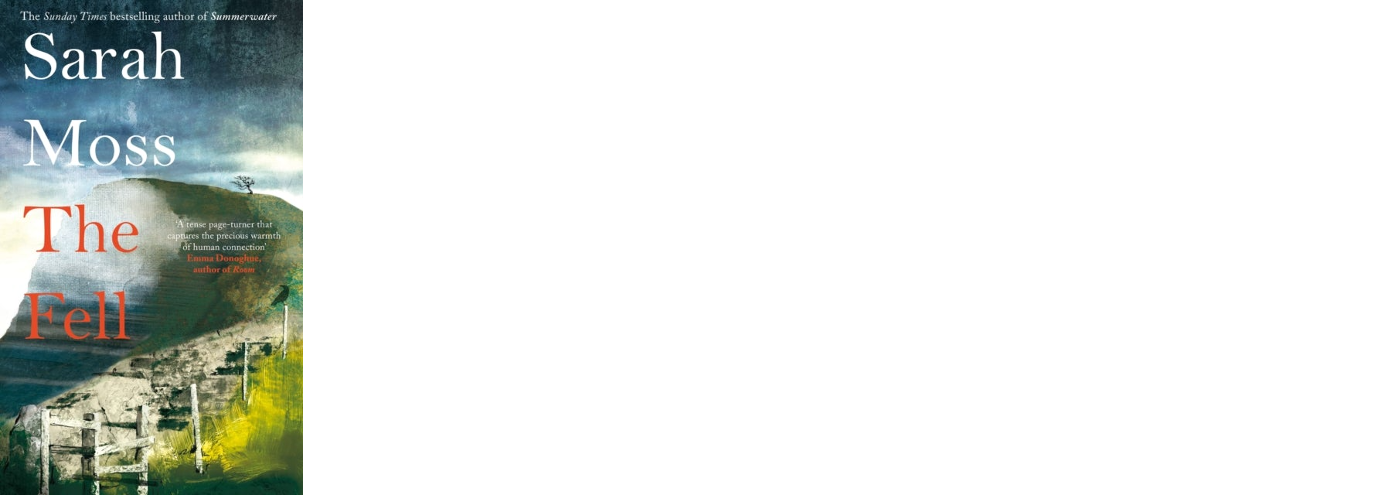
Sarah Moss’s 2009 debut novel, Cold Earth, imagined an out-of-control virus, said Hephzibah Anderson in The Observer. She returns to similar terrain with her latest novel – only this time with less need for invention. Set in November 2020, The Fell centres on Kate, a forty-something single mum, who “finally snaps” during a two-week quarantine period, and goes for a solitary walk in the Peak District. It’s “destined to be an ill-fated expedition”: the night draws in, Kate doesn’t return – and her absence is noticed by her teenage son Matt. With its vivid sense of “accumulating dread”, this is an “intense time capsule of a tale”.
Moss moves “gracefully” between various perspectives, said Sarah Ditum in The Times: that of Alice, an elderly neighbour; and Rob, a member of the mountain rescue team. Elegantly written and concise, The Fell is a “close-to-perfect” novel. Even though Moss has said it was written fast, the prose here feels “precision-tooled”, said Roger Cox in The Scotsman. Remarkably, in only 180 pages, she has captured “all of lockdown life”.
-
 6 of the world’s most accessible destinations
6 of the world’s most accessible destinationsThe Week Recommends Experience all of Berlin, Singapore and Sydney
-
 How the FCC’s ‘equal time’ rule works
How the FCC’s ‘equal time’ rule worksIn the Spotlight The law is at the heart of the Colbert-CBS conflict
-
 What is the endgame in the DHS shutdown?
What is the endgame in the DHS shutdown?Today’s Big Question Democrats want to rein in ICE’s immigration crackdown
-
 Bad Bunny’s Super Bowl: A win for unity
Bad Bunny’s Super Bowl: A win for unityFeature The global superstar's halftime show was a celebration for everyone to enjoy
-
 Book reviews: ‘Bonfire of the Murdochs’ and ‘The Typewriter and the Guillotine’
Book reviews: ‘Bonfire of the Murdochs’ and ‘The Typewriter and the Guillotine’Feature New insights into the Murdoch family’s turmoil and a renowned journalist’s time in pre-World War II Paris
-
 6 exquisite homes with vast acreage
6 exquisite homes with vast acreageFeature Featuring an off-the-grid contemporary home in New Mexico and lakefront farmhouse in Massachusetts
-
 Film reviews: ‘Wuthering Heights,’ ‘Good Luck, Have Fun, Don’t Die,’ and ‘Sirat’
Film reviews: ‘Wuthering Heights,’ ‘Good Luck, Have Fun, Don’t Die,’ and ‘Sirat’Feature An inconvenient love torments a would-be couple, a gonzo time traveler seeks to save humanity from AI, and a father’s desperate search goes deeply sideways
-
 A thrilling foodie city in northern Japan
A thrilling foodie city in northern JapanThe Week Recommends The food scene here is ‘unspoilt’ and ‘fun’
-
 Tourangelle-style pork with prunes recipe
Tourangelle-style pork with prunes recipeThe Week Recommends This traditional, rustic dish is a French classic
-
 Samurai: a ‘blockbuster’ display of Japan’s legendary warriors
Samurai: a ‘blockbuster’ display of Japan’s legendary warriorsThe Week Recommends British Museum show offers a ‘scintillating journey’ through ‘a world of gore, power and artistic beauty’
-
 BMW iX3: a ‘revolution’ for the German car brand
BMW iX3: a ‘revolution’ for the German car brandThe Week Recommends The electric SUV promises a ‘great balance between ride comfort and driving fun’